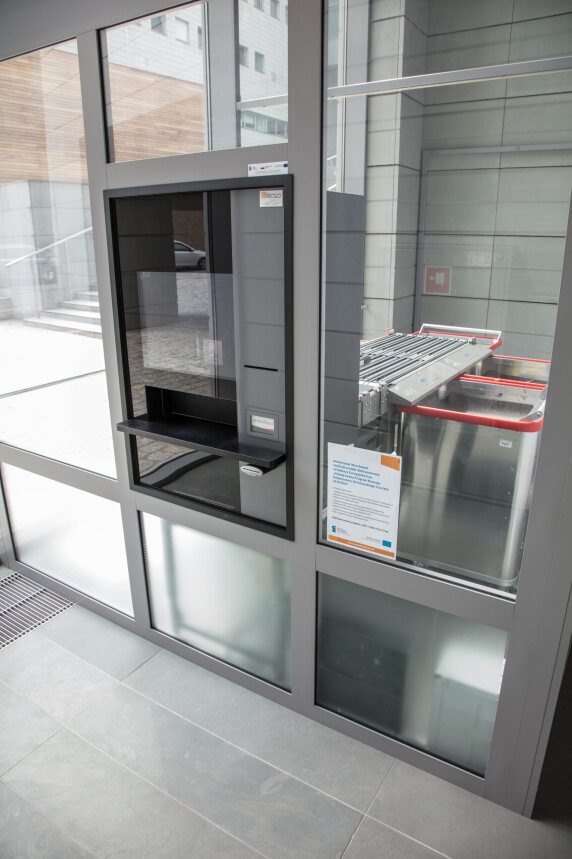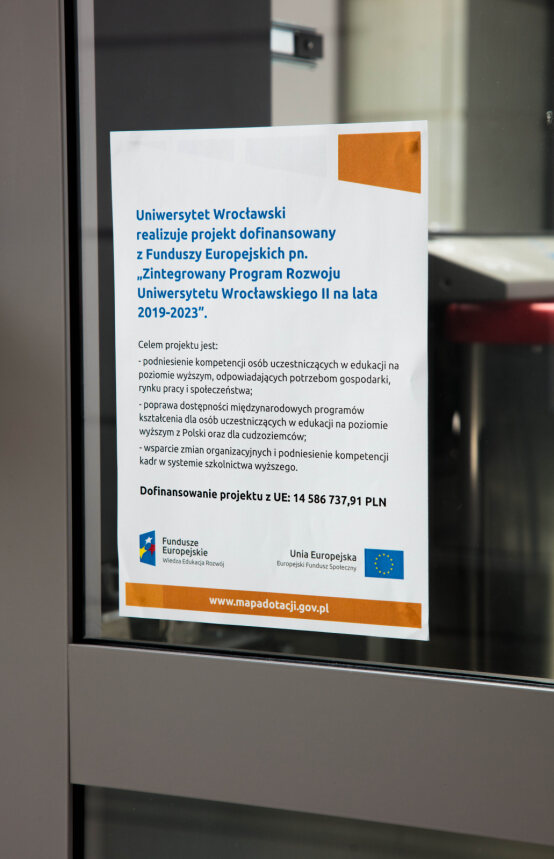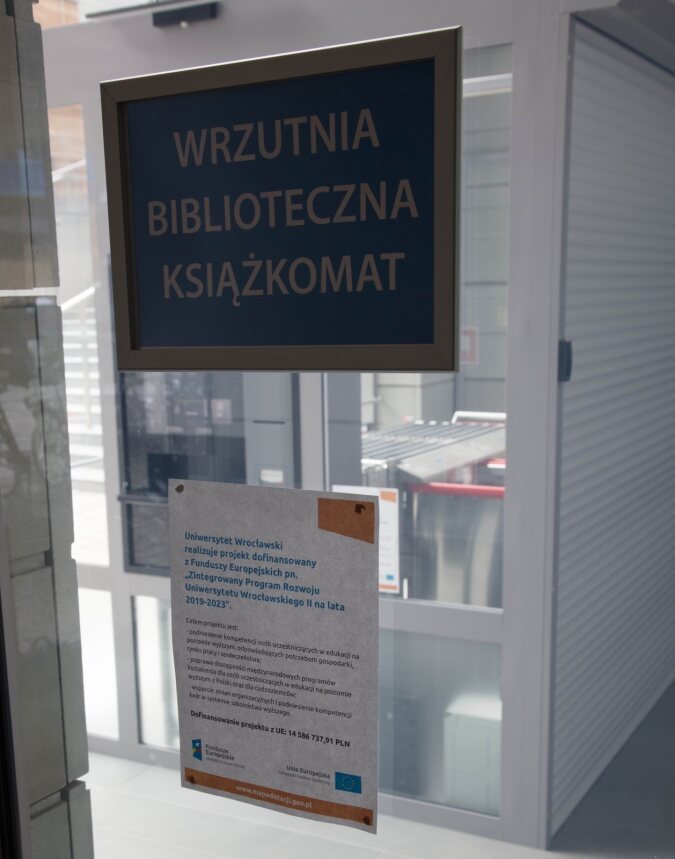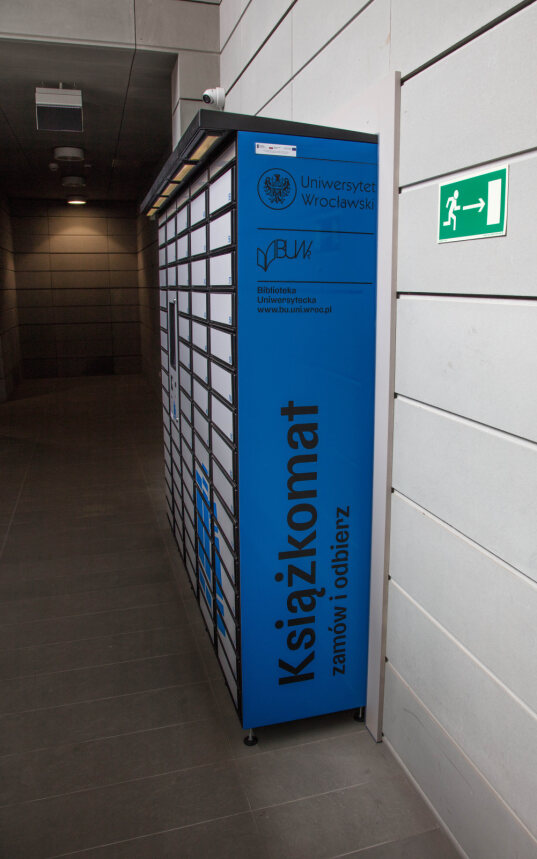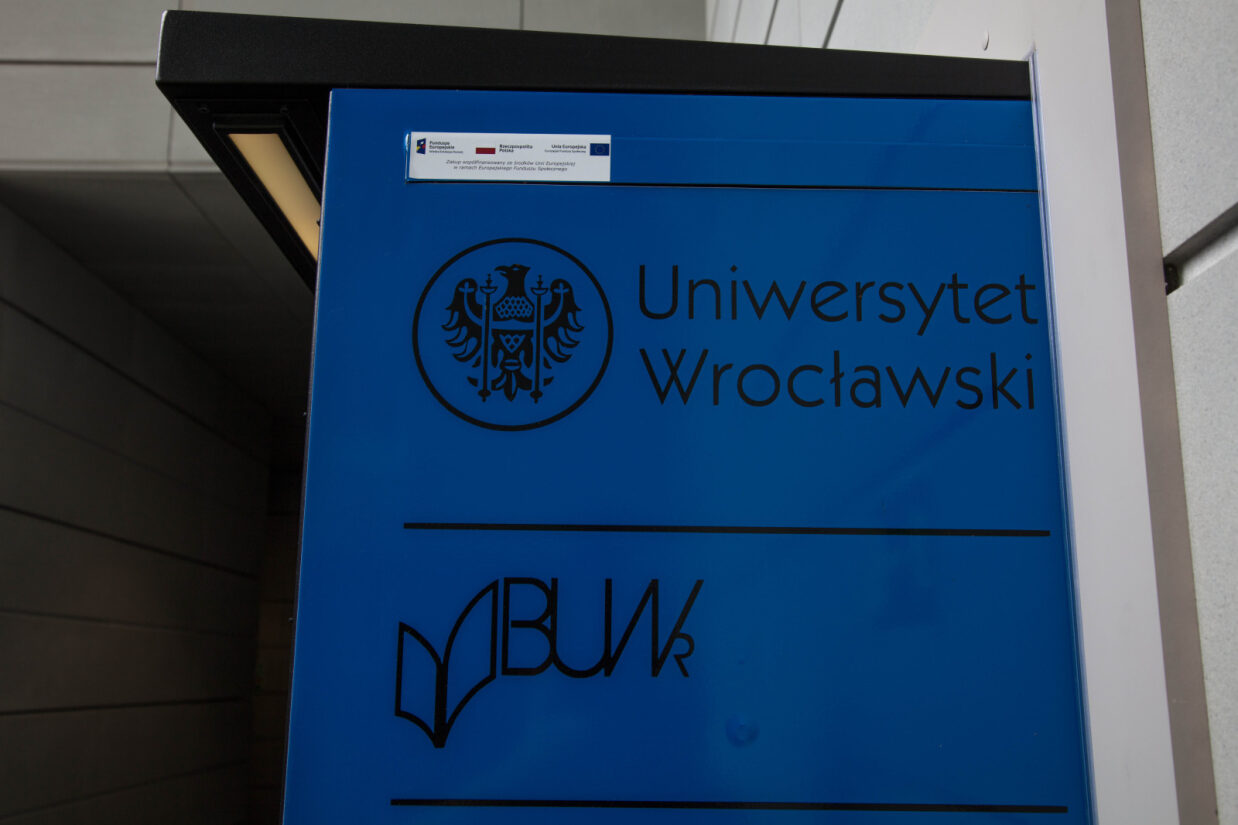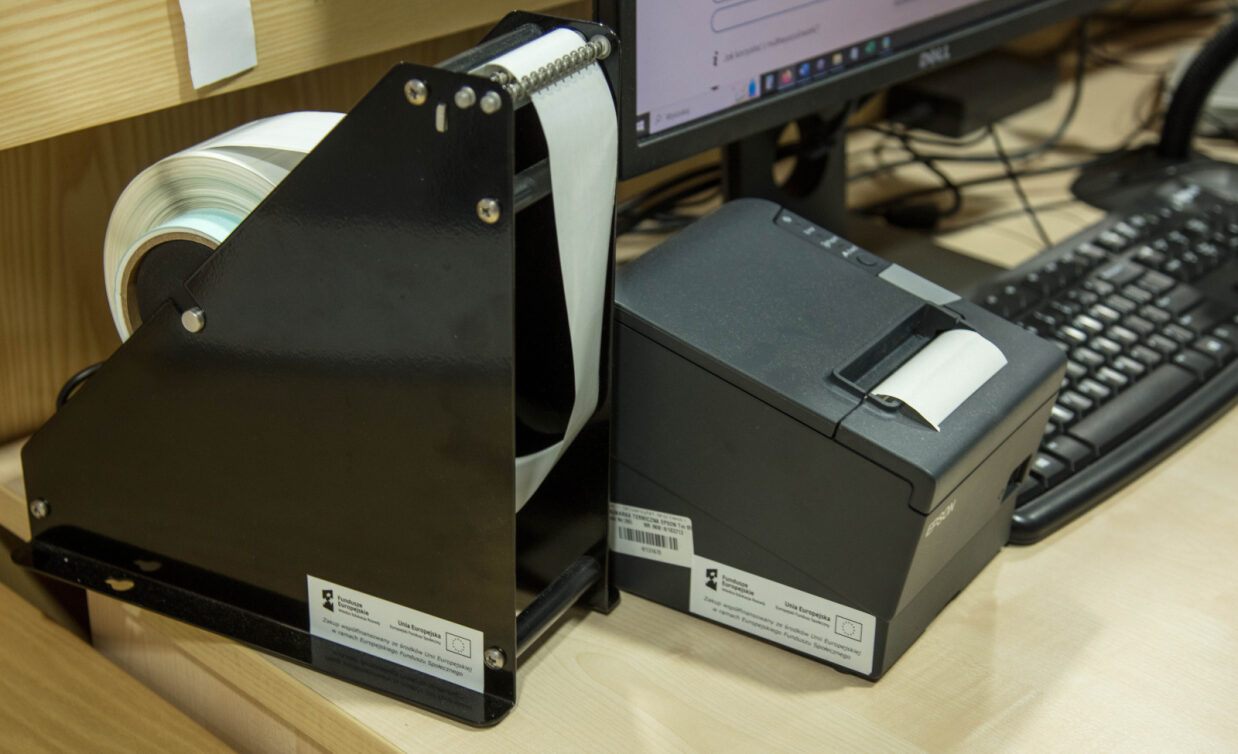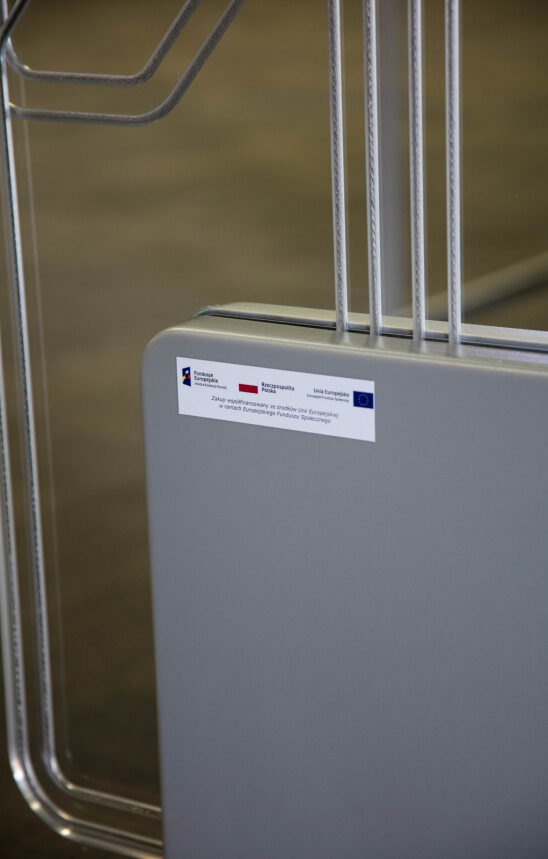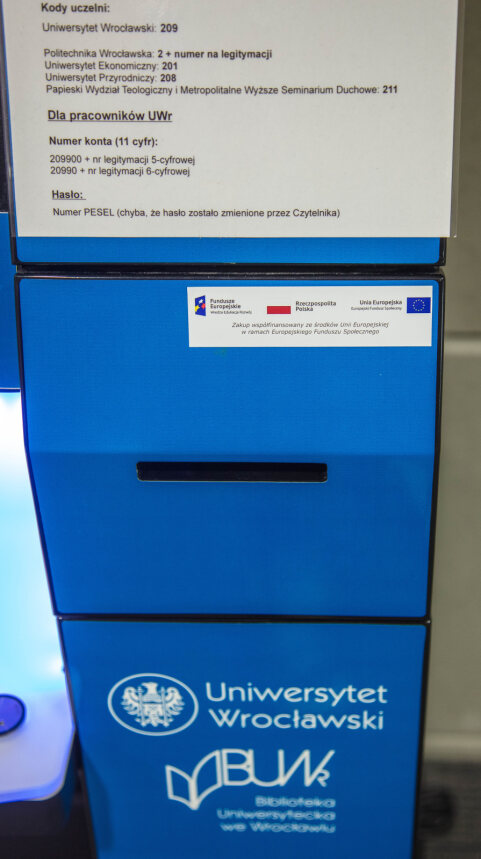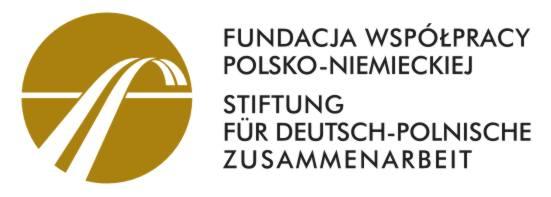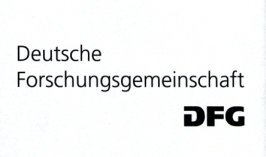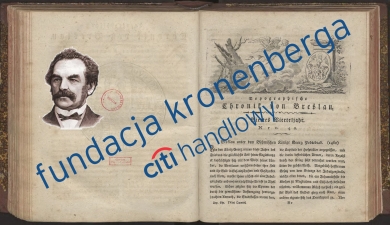Projects in the Library
[state on 7.11.2023]
Social Responsibility of Science II - Support for research libraries

The Wroclaw University Library received funding for the implementation of three projects under the Social Responsibility of Science II – support for research libraries programme of the Ministry of Science and Higher Education. .
Based on the allocated financial resources we will be able to implement the following projects:
1. The Silesian and Lusatian periodicals in the online catalog of the Wroclaw University Library
As part of the project work, 160 titles of periodicals from the Silesian-Lusatian Collection of the Wroclaw University Library, from the end of the 19th and beginning of the 20th century, which constitute a permanent element of the heritage of the city of Wroclaw and the Lower Silesia region, included in the historical, social, scientific and cultural dimension, will be cataloged. Thanks to the implementation of the project, information about unique periodical resources will be included in publicly available catalogs and databases of national and international scope and will be an invaluable source of information about rare publications and those not recorded anywhere so far, documenting the cultural and scientific achievements of the Silesian and Lusatian regions.
The results achieved in the project (including subject cataloging of the collection) will also facilitate the preparation of sources and bibliographies for scientific work in various disciplines, including history, linguistics, cultural anthropology and literary studies.
2. Dissemination of information about the musical collections of the Congregation of St. Ursula library in the online catalog of the Wroclaw University Library
The aim of the second project is to catalog 250 music prints and 100 music manuscripts from the collection of the historical school library, operating since the first half of the 19th century at the monastery of St. Ursula in Wroclaw. The collections selected for cataloging within the project constitute an invaluable source on the level of music education and its role both in Wroclaw and in the entire region. The value of the collection is increased by its uniformity of provenance, which is manifested both by the use of unified library bookplates and historical call numbers. Another extremely important element is the presence of signatures of individual students on many copies, as well as ownership notes of nuns.
Cataloging of the collection will undoubtedly supplement the knowledge on music education in the aforementioned monastery school, and thanks to the digital accessibility of information on the cataloged resources, it will enable the Wroclaw musicological community to familiarize themselves with this issue. The value of the collection is also evidenced by the diversity of musical genres and forms, as well as the presence of famous composers from that time in the collection. Thanks to the use of the latest IT systems and advanced bibliographic techniques, it will be possible to make the cataloged collection available to a wide range of recipients all around the world. The works established as part of the project are in line with the mission of the Wroclaw University Library, which has, since its establishment, been storing, protecting and disseminating knowledge from most fields of sciences, with particular emphasis on the Silesian region.
3. The popularization of pre-war dissertations of the University of Wrocław in the WUL's online catalog is the third project that has received ministerial funding for its implementation.
Our goal is electronic (retrospective) cataloging of the dissertations from the former German University in Wrocław, which will result in introducing information about this collection into Polish and international bibliographic and scientific circulation. Online access to extensive descriptions will increase the dissemination of information and facilitate access to source materials for a wide range of recipients - both scientists, researchers of history and history of science as well as specialists in other fields, but also people interested in the intellectual culture of the region. The work planned as part of the project will allow for the expansion of the knowledge base, already partially existing within the electronic catalogs of the Wroclaw University Library, and for the expansion of information about the collection of dissertations.
Social Responsibility of Science - a program of the Ministry of Science and Higher Education implemented at the Wroclaw University Library
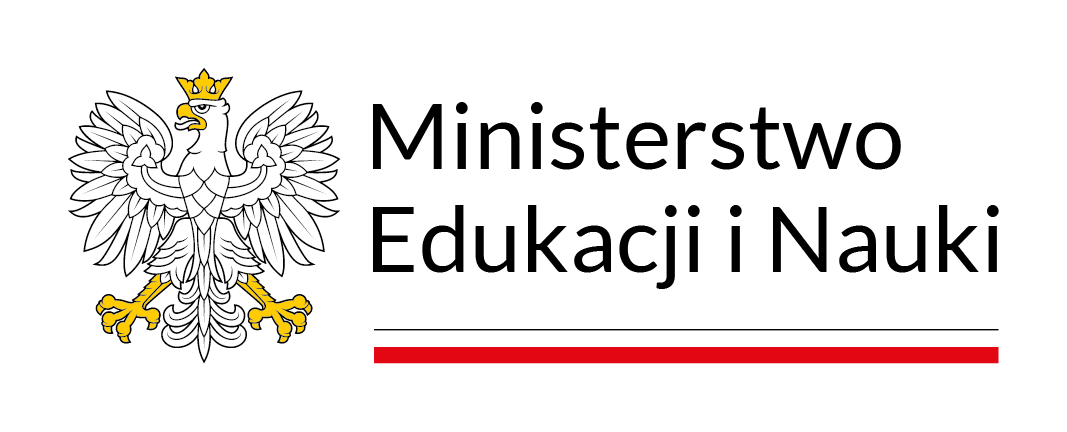
The Wroclaw University Library is the beneficiary of funds allocated by the Ministry of Education and Science in 2023 under the "Social Responsibility of Science - Support for research libraries" program in the amount of 158 330 PLN. The received funding allowed for the implementation of two projects: (1) Collection of the Potocki family from Krzeszowice. Development of the Wroclaw University Library's computer catalog and (2) Silesiaca and Lusatica – dissemination of unique journals from the Wroclaw University Library.
Employees of the University Library's Monographs Department and the Serials Department undertook a retrospective, comprehensive computer processing of the book collection from the collection of the Potocki family from Krzeszowice and selected periodical titles from the Silesian-Lusatian collection of the Library.
The first project included the selection and processing of 1,200 copies of monographs, that are part of the historical collection of the Potocki family from Krzeszowice. These books were published from the beginning of the 19th century until the 1940s. The collection of the Potocki family from Krzeszowice, currently scattered in various libraries, museums and archival institutions, is an example of a very well-preserved Polish pre-war aristocratic collection. It was built by the family over the course of over a century - from 1822, when the Krzeszowice line of the Potocki family emerged, until 1946, when the collections came under state management. In the years 1948-1949, part of them went to the Wroclaw University Library; other parts are kept by the National Library and the Jagiellonian Library. The vast majority of items in this collection come from the period of Galician autonomy (approx. 1867-1918), thanks to which it creates an interesting picture of the literary, cultural and social reality of those days.
 |
 |
Statuta polskÿe crola Kazimirza w Wÿslÿci slozone / copied and afterword by K. Stronczyński. Warszawa: at S. Orgelbrand, approx. 1840.
The themes of the collection are very diverse: they reflect the interests of the owners, their travels and fascinations, but also the political situation of that times. As the years passed, the collection was also enriched by gifts received by the Potocki family and deposits from the resources of friendly collectors. It therefore includes items from such diverse fields of knowledge as medicine, science, history, religion and philosophy, agronomy and animal breeding, geography, industrial activities, economics, law. Religious and devotional literature constitutes a significant part of the collection. It includes items of various nature - from prayer books, collections of songs, catechetical and didactic writings, through sermons and speeches delivered during important church ceremonies, to historical or biographical works devoted to religious issues, in particular to the figures of clergy and saints known at that time.

Biblia, Talmud i Ewangelia / by Eliasz Sołoweyczyk; translation under the direction of Xawery Korczak Branicki. Paryż: at Drukarnia Polska A. Reiffa, 1879.
Also noteworthy is the multitude of publications relating to the socio-political life that was dynamically developing in former Galicia and in Krakow itself. Gathered works include many speeches by parliamentarians and councilors (as well as candidates for that positions), pamphlets and political proclamations, but also - making a great impression with their numbers - statutes of societies and organizations dealing with all spheres of human activity. There is also no shortage of already adopted laws, as well as proposed draft laws or statements on matters involving public opinion. The creators of the collection - the Potocki family of the Krzeszowice line - were strongly interested in current political as well as social life, taking place primarily in the aristocratic and landed gentry spheres. This is evidenced by the presence of many prints relating to this type of events in the book collection - for example, accounts of family celebrations, speeches given on such occasions and biographical memoirs devoted to important figures of the society of that time. An important place in the Potocki's collection is occupied by works written by important representatives of the landed gentry and nobility, who set the tone for the cultural and social reality of the second half of the 19th century. It is worth mentioning Stanisław Tarnowski here. This interests of the owners of the collection are also reflected in the very significant share of publications concerning Krakow and its socio-political life, and more broadly - the Krakow land and the Kingdom of Galicia and Lodomeria.

Niebo i ziemia: pogadanki spisane dla panien hrabianek Róży i Zofii Potockich / Stanisław Kluczycki. Kraków: published by F. Kluczycki, 1894.
Books included in the Potocki's collection were published in various places - both in Poland (in nearby Krakow, Warsaw, Lviv and Vilnius), and abroad - in Paris and Vienna. Most of them are Polish-language works, but there are also works published in French and German, Latin, Czech and Russian. It is worth mentioning that this collection, expanded by subsequent generations of the family, retained almost its full integrity until the outbreak of World War II. The collection is of great historical and cultural value and can undoubtedly be considered a model example of Polish 19th-century collecting. The received ministerial funds allowed for the processing of the entire collection of the Potocki family from Krzeszowice, owned by the Wroclaw University Library. The total number of this collection is over 4,000 items.

Opis obchodu uroczystości jubileuszowej 25-letniéj działalności Towarzystwa Wzajemnych Ubezpieczeń w Krakowie święconéj w dniu 8 Czerwca 1886 roku / written on the basis of authentic documents by Józef Mrazka. In Kraków: «Czas» Printing house, 1887.
The goal of the second project was the selection and computer processing of 160 unique titles of serial publications from the Silesian-Lusatian collection, including titles such as: Katolik: pismo poświęcone nauce, przemysłowi, zabawie i wiadomościom politycznym (Mikołów 1868-1931), Niderslezje (Wrocław 1948-1950), Ober-Lausitzer Anzeiger (Rothenburg 1842-1851) or Ober-Lausitzer Beobachter (Seidenberg 1850-1852).
The special value of the University Library's collection of Silesian periodicals is evidenced primarily by its historical provenance. The collection includes publications on Silesia and Lusatia called Silesiaca and Lusatica. The Silesiaca collection consists of all materials whose content is related to the Silesian region, biographies of people who have been active in this region, as well as Polonica (publications published in Silesia region before 1945). Lusatica are materials related to the Lusatian region, regardless of language or place of publication, as well as all prints in the Lusatian language. The Silesian-Lusatian collection includes monographs and periodicals published from the 16th century to 1945, coming from the former University Library and the City Library, from the post-war recovery of collections from all over Silesia and Lusatia, from other pre-war libraries in Wroclaw, as well as new prints published after 1945 that originate from a mandatory copy, purchases, donations as well as domestic and foreign exchange. An important part of that collection are serials published from the 18th century to the present time. It is the largest resource of pre-war Polish press published in Silesia in Poland and in the world. Almost 100% of the periodicals published in Wroclaw have been preserved. The Silesian-Lusatian collection is a historical collection of prints about Wroclaw called Wratislaviana. This collection comes from the former City Library of Wrocław. Particularly valuable periodicals and monographs are successively secured on microfilms and digitally, which allows for presentation and dissemination in the Digital Library of the University of Wrocław.

The reason for continuing of the computer cataloging of periodicals from the Silesian-Lusatian collection was the fact that these already processed objects constitute an example of excellent material documenting the cultural achievements and the development of science in Silesia and Lusatia regions over several centuries. This collection contains many rare publications that have not been recorded anywhere else, which is an additional cognitive value. However, the open thematic formula, which gives these publications an interdisciplinary dimension, will certainly find its recipients both in the scientific world and among society.
The periodical titles qualified for the ministerial project were comprehensively cataloged in the VTLS/VIRTUA program in the MARC21 format for the NUKAT National Universal Union Catalog, along with a complete set of required descriptions of the authority subject headings (KHW), including bibliographic descriptions of the causative institutions, publishing institutions, personal subject headings and advanced subject headings in KABA language thematically describing a given periodical. 127 KHW entries and 425 advanced subject headings of my own authorship were developed, a total of 41 KHW entries were modified and 1,466 KHW entries and d advanced subject headings were linked to bibliographic records. Detailed descriptions of items were prepared in the local database of the WUL's computer catalog according to the required templates, including any co-published or independent supplements. The 160 items records contain 24,302 units (i.e. volumes, issues, supplements, etc.).
In this way, information about valuable publications is available and promoted both locally and globally. This will enable all interested parties, mainly specialists in history, cultural anthropology and linguists in Poland and around the world, to properly prepare sources and bibliographies for their scientific work.
The actions undertaken so far by the University Library to increase access to its resources have already brought measurable results: they have introduced information about many valuable sources of knowledge into the global scientific circulation, and the work carried out in the projects described above contributes to increasing this resource. The implementation of both projects was possible thanks to ministerial funding under the Social Responsibility of Science program, and information about 160 titles of unique periodical publications from the Silesian-Lusatian collection and 1,200 titles of unique works from the collection of the Potocki family from Krzeszowice entered scientific circulation.
Examples of periodicals from the Silesian-Lusatian collection cataloged as part of the project:
 |
 |
Zuzanna Strześniewska-Piątek, WUL's Monographs Department
Ewa Grabarska, WUL's Serials Department
Monika Górska, projects manager
National Reading Development Program 2.0 for years 2021-2025

As part of the multi-annual program "National Reading Development Program 2.0 for years 2021-2025", Priority 1. Improving the offer of public libraries, Direction of Intervention 1.2. Building a nationwide network of libraries through the introduction of an integrated library resources management system, the free Alma system and the Primo search engine will be implemented in the Wroclaw University Library and the departmental libraries of the University of Wrocław network.
Thanks to the signed agreement, the National Library in Warsaw and the University Library will work in a common catalog environment. The implementation of the Alma system and the Primo search engine will start at the end of 2024 and will last until October 2025. By implementing Alma - the latest generation library system - the libraries of the University of Wrocław will be able to co-catalog in real time according to uniform cataloging principles using the National Library Descriptors.
The National Library will provide training for employees of the libraries of the University of Wrocław in the use of the Alma system, cataloging publications in particular disciplines, and deduplication of records. The National Library will participate in the entire process of implementing the new system at the University of Wrocław.
Social Responsibility of Science - a program of the Ministry of Science and Higher Education implemented at the Wroclaw University Library

Under the Social Responsibility of Science program announced by the Ministry of Science and Higher Education, the Wroclaw University Library received funding for the implementation of two projects in the module: Social Responsibility of Science - support for scientific libraries, entitled:
· 16th-18th century Polonica from the collections of the University Library in Wrocław - preparation, digitization and publication on the Internet (Polonika XVI-XVIII-wieczne ze zbiorów Biblioteki Uniwersyteckiej we Wrocławiu – opracowanie, digitalizacja i upublicznienie w sieci) and
· Musicals items from the former school library of the Congregation of St. Urszula in Wroclaw. Dissemination of the resource (Muzykalia dawnej biblioteki szkolnej Zgromadzenia św. Urszuli we Wrocławiu. Upowszechnienie zasobu)
Both projects will be realized by employees of the University Library from 2.11.2023 to 31.10.2024.
The goal of the first project is comprehensive cataloging, digitization and wide publication online of selected 500 rare prints from the Library's collection of the 16th-18th century Polonica. Taken into account are Polonica sensu largo, i.e. those that meet not only territorial criteria, but also linguistic, ethnic and content criteria, in accordance with the criteria adopted in Estreicher's Old Polish Bibliography, not yet listed in the central catalogue. Currently, obtaining information about the collection of Polonica in the Library is difficult because, unlike in many other libraries, they do not constitute a separate collection, and the information about them in the literature on the subject is incomplete and outdated. Old prints intended for cataloging as part of the project will be selected basing on criteria including: the rarity of a given work, its importance for the history of Polish and, more broadly, European literature, and importance of historical provenance. Cataloging of this collection also involves providing information regarding ownership marks and bindings for the items qualified for the project. Some (eighty) objects will be fully digitized; 420 objects were selected for partial digitization that will include only so-called key pages. This solution will provide visual access to the most important bibliographic and individual features of the item, also in case of prints that, for technical or conservation reasons, cannot be scanned in their entirety. The 50 selected most interesting bindings will be additionally documented with an innovative imaging method - RTI, i.e. Reflectance Transformation Imaging, enabling the display of the three-dimensional structure of each binding.
Thanks to the undertaken activities, information about five hundred rare prints (their descriptions, content and special features) will enter global scientific circulation. Providing online bibliographic descriptions and the most important pictorial information about a given edition will be an invaluable tool for librarians, bibliographers and all researchers of ancient culture and literature, as well as a unique material for provenance and tegumentological research, i.e. for research areas that have been the focus of scientific attention in recent years.
The second project focuses on computer processing and making available in databases a collection of music scores and musical literature from the former school library operating at the monastery of St. Urszula in Wroclaw that was donated to the Wroclaw University Library. The historical collection of the library covers a chronological period from the first decade of the 19th century to the early post-war years. In the scope of the project it is planned to create in electronic databases descriptions of 200 musical prints, 200 books on music education and 200 musical manuscripts.
The collections selected for the project include unique handwritten musical works dedicated by the most important Wroclaw composers to the Ursuline Monastery.
Thanks to the implementation of the project, information about this collection will enter global scientific circulation, constituting an important contribution to undertaking new research topics, and by guaranteeing open access to the cataloged content in computer catalogs and databases - it will also become a source of knowledge for a wide range of hobbyists and society members interested in this topic.
Integrated Development Programme of the UWR II 2019-2023

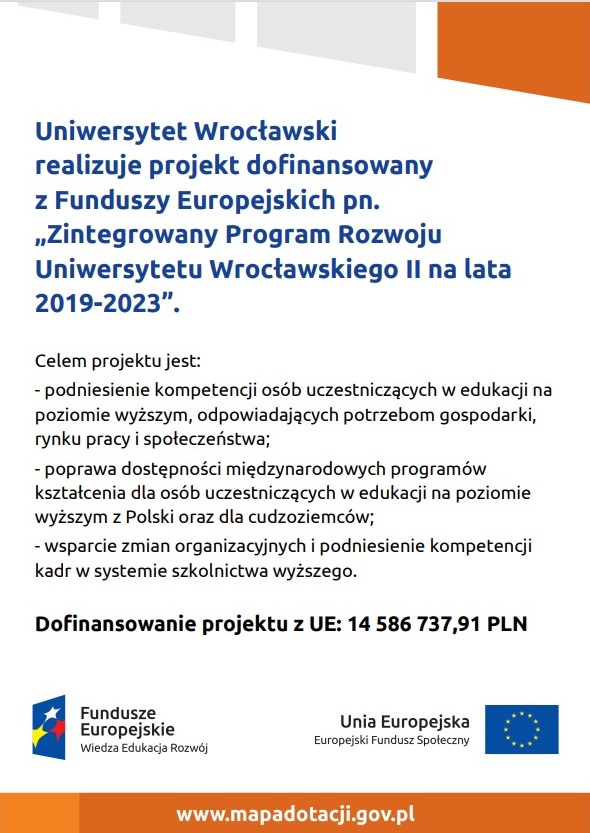
Tasks realized by the Wroclaw University Library
The programme is implemented by the European Union from ESF funds under the Operational Programme “Knowledge Education Development”, Priority Axis No. 3 “Higher Education for the Economy and Development”, Measure 3.1 “Competences in Higher Education”.
1. retrospective (computer) processing of the collections from University of Wrocław's libraries and the implementation of a security system as well as
2. control of the collections, lending and returning services based on RFID Hf (Radio Frequency Identification) technology.
Project implementation period: 01.02.2019-31.01.2023
Project value: 17 307 472,60 PLN
Task 1
Retroconversion of the collections from University of Wrocław's libraries
The University Library along with the libraries included in the information and library network performs tasks related to the retroconversion of library materials in seven units: Library of the Faculty of Law, Administration and Economy, Library of the Institute of History, Library of the Institute of English Philology, Library of the Institute of Polish Philology, Library of the Institute of Mathematics and Computer Science, Library of the Social Sciences Department and University Library.
In the cataloging process were included monographs: contemporary publications, didactic works, items from the turn of the 19th and 20th centuries from the departmental libraries' and the Wroclaw University Library's collections. The tasks of the team include downloading descriptions of books already cataloged by other cooperating libraries from the national central catalog of NUKAT to the local catalog of the University Library and adding item records of these publications for University's individual libraries, as well as creating new bibliographic descriptions for monographs that do not have records in the NUKAT central database, along with a complete set of records for the master index of subject headings, i.e. the creation of access points mapped to the Central Master Index of Subject Headings, and a description of the item records of these publications in the University's local catalog database.
Created descriptions will be available both in the central NUKAT catalog and in the electronic local catalog of the Wroclaw University Library (national level), as well as in global catalog databases: WorldCat, KVK, VIAF, ISNI.
In the framework of the project it is planned to create over 53,000 bibliographic records and over 75,000 item records.
Task 2
Implementation of a system for securing and controlling collections as well as handling lending and returning services based on RFID Hf (Radio Frequency Identification) technologyAs part of the task no. 2, an electronic system operating in RFID radio technology will be installed in the Wroclaw University Library, enabling the identification of library collections and their protection against theft. The implementation of the system will ensure the protection of non-borrowed collections against their uncontrolled removal from the Library, and is also intended to significantly improve the processes related to lending and controlling library materials. The components of the RFID system are devices that will allow the implementation of these processes. As part of the received EU funding, the following materials and devices operating based on RFID technology were purchased: RFID HF labels securing library materials and allowing for the handling of lending and returning processes using RFID devices, librarian's workstations for coding labels via a data coding application - additionally equipped with manual dispensers of RFID labels, librarians' stations for rentals, returns and renewals of the collections, with the possibility of encoding RFID HF labels, RFID HF devices supporting the organization and control of collections, the so-called mobile counter, RFID Hf transceiver gates with a visitor counter, stations for self-renting, returning and prolonging of collections, the so-called RFID HF selfchecks, an internal RFID HF library drop box with a book sorter and library trolleys, which allows users to return library materials 24/7, i.e. 24 hours a day, 7 days a week. As part of the development of the RFID HF system, WUL also purchased, thanks to the financial support from the European Union, an automated device for collecting ordered books - the so-called book pick-up machine. This device allows Library's users to collect library materials that were ordered remotely via the online catalog 24/7, i.e. 24 hours a day, 7 days a week.
The funds obtained under the Integrated Development Program for the years 2019-2023 implemented at the University of Wrocław provide the libraries included in the information and library network of the University of Wrocław with the possibility of computer (retrospective) cataloging of their own library materials. The realisation of this task will contribute to the global dissemination of information about the library collections of the University of Wrocław via the Internet. On the other hand, the purchase of an RFID system and devices operating in RFID technology under the implemented Program will automatically contribute to the optimization of service for users of the Wroclaw University Library, as well as to streamlining not only the lending and returning of library materials, but also internal library processes related to their circulation and control.
Social Responsibility of Science - a program of the Ministry of Science and Higher Education implemented at the Wroclaw University Library
Workflow to develop digital publications at universities
The aim of the project “Workflow to develop digital publications at universities” is: to create a virtual workbench for researchers, scientists and teaching staff of the University of Wrocław, enabling independent preparation of digital publications for online presentation and teaching using source materials.
As part of the project, as a result of 6 substantive tasks, existing IT tools will be extended and integrated into a technological sequence enabling automation of publication of scientific papers and remote work on source documents.
The project provides for the creation of three e-services, including:
1. the Aggregator of Scientific Works (ADN) – a new system enabling technical and content-related inventory of data concerning digital and analogue publications requiring digitisation;
2. the Virtual Transcription Laboratory – an existing digital service launched within the framework of the “Leopoldina” project, which will be extended with new functionalities enabling handling and automation of transcription, processing and making available of scientific publications, cultural heritage objects and source materials (manuscripts, archives, etc.)
3. the Repository of the University of Wrocław – development and expansion of the existing digital service enabling publication of scientific output of University of Wrocław employees. As part of the project, this e-service will be expanded with new functionalities allowing for more effective management of scientific publications in accordance with new mandates from the Ministry of Science and Higher Education, as well as communication with external aggregation systems aimed at promoting and disseminating research results. As part of the project, the UWr Repository will be integrated with the Transcription Laboratory in terms of automating the production of digital publications by UWr employees. E-services will be available through the portal “Leopoldina on-line”. The main scope of ISP processed as a result of the project will include scientific publications and source texts from the fields of broadly understood humanities and history.
We encourage you to familiarize yourself with the events accompanying the project:
Innovation Night - Remote transcription of manuscripts
Transcription for dummies, or a few words about how you can "correct" the rector
EnrichEuropeana+


People and computers work together to unlock the treasures of the past.
University of Wrocław - University Library is a member of the European consortium selected for funding by the European Commission for the EnrichEuropeana+ project. This exciting initiative will combine citizenship science and artificial intelligence to unlock 19th century handwritten documents and make them available for researchers, students, amateur historians and the public. Irish, Dutch, German, Austrian and Croatian partner institutions will join us in this innovative project.
Goals of the project:
The archives and libraries contain a great deal of information on the history of the 19th century. Most of the original sources are available only in handwritten form and therefore are not widely accessible.
To address this problem, as part of the project, important handwritten documents will be digitized and use a combination of artificial intelligence and contributions from members of the public acting as 'citizen scientists' to transcribe these handwritten documents.
The project will use the Europeana platform, which supports the cultural heritage sector in its digital transformation, by providing one common portal for cultural heritage content from all over Europe. The current EnrichEuropeana+ project is based on previous EU-funded projects during which the Europeana platform was developed, the Transcribathon platform for crowdsourcing transcription in Europeana and the automatic transcription tool Transkribus. The project will cover the application of natural language processing and big data analytics technologies for transcription analysis and translation, providing support for the enrichment, grouping and classification of semantic metadata. What would have taken days to decrypt before can be read in minutes, saving scientists valuable time and opening up our history.
Our contribution:
University of Wrocław - University Library will provide letters form University's professors from the collection of the Manuscripts Department, minutes of meetings of the Senate of the University of Wrocław (from the University of Wrocław Archives), reports from the expedition to Siberia by prof. Stanisław Poniatowski (from the Library of the Polish Ethnological Society) and materials from the State Archives in Wrocław (cooperation within the framework of the Lower Silesian GLAM).
As part of the project, the University Library will encourage and organize members of the public to transcribe this historical, handwritten material. Handmade transcripts will create training data for AI data models.
Federation of Digital Libraries, the Polish national aggregator for Europeana will identifie relevant digital collections to be aggregated into Europeana and included in the Transcribathon platform.
After the transcription, the materials will be included again in the local resources of partner countries, in our case in the Digital Library of the University of Wrocław and will be accessible via Europeana.
The full title of the project is: Enriching Europeana with Citizenship Science and Artificial Intelligence - Unlocking the 19th century
The awarded funding amounts to EUR 921,566.
The project will be realized from 01.04.2021 to 31.03.2023.
Webpage of the project: https://pro.europeana.eu/project/enricheuropeana
Project partners:
- Austrian Institute of Technology - Austria
- Stichting Europeana - The Netherlands
- Facts & Files of the Historisches Forschungsinstitut Berlin - Germany
- Institute of Bioorganic Chemistry of the Polish Academy of Sciences - Poland
- Read-Coop SCE - Austria
- Provost, Fellows, Foundation Scholars and other members of the Board of Queen Elizabeth's Holy and Undivided College near Dublin - Ireland
- Dublin City Council - Ireland
- University of Wrocław – Poland
- State Archives in Zagreb - Croatia
Thematic portal – Cultural heritage in Wroclaw University Library’s research
Library’s own project. This subject portal is presenting results of projects realized in WUL. Its core is database, that integrates results of projects realized in WUL’s Department for Scientific Documentation of Cultural Heritage. Thanks to shared indexes and creation of unique identifiers for tagging graphical files in all collections, it is possible to browse all collections with dynamic interface.
Database is available from 1.07.2013 at the address:
https://dk.bu.uni.wroc.pl
As a part of the subject portal preparation an unify system of internet addressing for all databases in domain https://dk.bu.uni.wroc.pl is being implemented.
More information about creating databases for cultural heritage (in English):
Żurek Adam, Joanna Pawliniak, Digitization of Cultural Heritage and Databases for Historical Sciences - Together or Separately?
https://www.inforum.cz/proceedings/2012/19/
Digital Library of Wroclaw University
Digital Library of Wroclaw University project is conducted on basis of self funds of Wroclaw University Library. Digital Library offers access to the oldest written texts, educational collections and exhibitions, which present most interesting materials chosen from rich collections of Wroclaw University Library.
Digital Library collections include digitized materials that due to their historical value, content, form and regional scope, are European or regional cultural heritage. For the process of digitization the following types of materials are selected: books (including old prints), periodicals, manuscripts, photographs, music scores, maps, postcards, graphic collections as well as educational sources, exhibitions and other. Territorial scope of Cultural heritage collection includes almost whole European region, and Regional collection includes whole Silesia and Lusatian regions, with specially stressed - Lower Silesia region and city of Wroclaw.
Digital collections include the following categories:
- cultural heritage
- periodicals
- ephemera
- books edited between 1800 and 1945
- manuscripts
- old prints
- graphic collections
- cartographic materials
- music collections
- catalogs of WUL
- educational materials
- regional materials
- bibliological collections
- e-WUL Publisher
CEE MASTER
Coordinator of CEE MASTER project is National Library in Prague. WUL has participated in that project since September 2003. Aim of that project is to create manuscript catalog database that is accessible via internet and includes descriptions of manuscripts from countries from Central and East Europe, processed on basis of MASTER standard in XML language (eXtensible Markup Language). Wroclaw University Library pledged to enter to the database at least five manuscripts descriptions weekly.
RISM
On the basis of cooperation with RISM Central in Frankfurt am Main, started in 1997, Wroclaw University Library participates in creation of computer database of music manuscripts from European libraries. That database is accessible via internet (from Sales Nisc portal) and on CD-ROMs.
Activities for Dissemination of Science 2019 (Działalność Upowszechniająca Naukę - DUN)
Activities for Dissemination of Science (Działalność Upowszechniająca Naukę - DUN) is a project financed by the Ministry of Science and Higher Education. Its goal is the realization of tasks supporting the development of Polish science through its dissemination, promotion and popularization. As part of funding from the DUN project, resources are available for research libraries for, inter alia, the development and dissemination of electronic information regarding scientific collections of libraries as well as for publishing activities. The University Library is realizing tasks under the DUN project since 2014. In 2019 the Library received further financial support for the realization of as many as 5 tasks in the field of cataloging library materials and digitization, as part of the agreement No. 771/P-DUN/2019. The project was realized from February 1st to October 30th, 2019.
Task 1
Pre-war humanities periodicals from the Wroclaw University Library - enlargement of the computer catalog with bibliographic descriptions of the periodicals from the former City Library and the so-called German concentration
This task was realized by a team of employees from the University Library's Serials Department and focused on the computer cataloging of the valuable, pre-war German periodicals collections. Wroclaw University Library has the largest post-German collections in the country (both books and periodicals) that has been preserved and protected against war damage, as well as from shipping out and theft. The pre-war humanities periodicals from the Wroclaw University Library orginate from three main sources: the former City Library, the former University Library and from other libraries, not only Silesian, secured in Lower Silesia region after the war (so called "German concentration", restricted collections).
Up to 1939, the City Library was the largest city library in Germany. Its collections have survived Second World War and today enrich the humanist collections of the Wroclaw University Library. These collections mainly represent following fields of science: history, social sciences, law, philosophy, pedagogy, art with musicology and history of natural sciences, as well as they document the activities of various organizations and scientific societies (their statistics and reporting on research).
Major parts of the collections from the former University Library were destroyed. Collections that have survived focus mainly on law and religion issues, from different countries, including non-European ones.
Collections from various libraries, not only Silesian, but secured in Lower Silesia region, are multilingual publications from history, literature and art history.
Aim of that project was to catalog 120 titles of pre-war periodicals, create for them bibliographic and items records as well as authority files.
Task 2
Portrait in the Wroclaw University Library - dissemination of sources by cataloging and digitizing images of European individuals and famous persons as contributions to research and sharing knowledge of the art of portraiture from the 16th to the 20th century
The second task realized as part of the project Activities for Dissemination of Science was to process in the Dublin Core program and then make them available in the Digital Library images of famous persons, engravings, portraits, also anonymous persons, that are basic source of knowledge for specialist research in the field of everyday life, costume design and material culture of various groups of European communities from the 16th to the 20th century, including Polish and Silesian. This collection gives the opportunity to search according to chronological, stylistic, provenance and many other criteria.
Discovering origins of individual portraits and their sets from library (e.g. former City Library in Wroclaw - Stadtbibliothek zu Breslau), museum (e.g. Regional Museum in Lwowek Slaski), official (City Archives in Wrocław) and private collections, will provide valuable materials for the researchers of collecting and individual collections, not only from Silesia. Thanks to obtaining ministerial funds, employees of the University Library were able to achieve the objectives set out in this task.
Access from Digital Library to such a diverse resources is facilitated by numerous keywords in the Polish, English and German language versions, created to adapt to the standards of the "Leopoldin" database that is currently under development. Keywords apply to portraits, authors, genres, formats and photographic techniques, and also indicate origins from the old collections.
The library and museology practice indicates the recently growing interest in portrait as an illustrative material for scientific and popular science publications as well as exhibitions on various subjects.
The final effect of the work carried out using the ministerial funds is the publication of approximately 1,400 files of portraits of individuals and famous persons associated with Silesian region, archived and made available in the Digital Library of the University of Wroclaw.
Because the Digital Library of the University of Wroclaw is part of the Europeana digital platform, cataloged in the Dublin Core format and digitized materials will be easily searchable in the global network, especially with an extensive system of keywords in English and German that was additionally developed and added to the descriptions.
Task 3
The third task – making available library collections in electronic form, which was realized as part of the ministerial project Activities for Dissemination of Science, was to disseminate of valuable sources for research by digitizing unique newspapers from the Silesia - Lusatian collection of the Wroclaw University Library. A team of employees from the Wroclaw University Library's Reprographic and Digitization Unit took care of microfilming, digitization and making the selected press available in the Digital Library of the University of Wroclaw. The main purpose of this task was to secure and present to the world valuable, historic collections from the Silesia - Lusatian collection. Obtained ministerial funds allowed for digitization and the secured collections are made available online in the form of digital files, thanks to which the originals are protected against damages.
For this task were selected five local periodiclas with unique research values, that are only found in the collections of the University Library in Wrocław and are not listed in the catalogs of German libraries: Landecker Stadtblatt. Öffentlicher Anzeiger für die Graffschaft Gkatz - newspaper published in Ladek-Zdroj, which covers in its scope the city of Ladek-Zdroj and the former Klodzko County, Landecker Stadtblatt und Nachrichten, newspaper published in Ladek-Zdroj, which covers in its scope the city of Ladek-Zdroj and the former Klodzko County, Anzeiger für Obernigk und Umgegend, which covers in its scope the city of Oborniki Slaskie and the surrounding area, newspaper Polkwitzer Stadtblatt. Wochen und Amtliches Anzeigenblatt für die Stadt Polkwitz und deren Umgegend as well as weekly published in Wroclaw by the Wroclaw Chamber of Craft (Handwerkskammer zu Breslau) - Schlesiens Handel und Gewerbe. Schlesisches Gewerbeblatt, Wochenschrift für den gewerblichen Mittelstand Schlesiens. Organ des Handelskammer zu Breslau which covers in its scope German Silesia area.
A large part of the newspapers from the Silesia - Lusatian collection, including the titles presented above, were printed from the turn of the 19th and 20th centuries on acid paper, which over the years was self-destructing - it began to break and crumble. Viewing and accessing the content of the originals was significantly impeded, and moreover, when they were made available to users, new, irreversible defects arose. Trying to protect the valuable historical collection of the regional newspapers, the Library is systematically conducting protecting microfilming and scanning. Because of that kind of actions, safety of historic collections is increasing and at the same time, wide access to the content of articles, without having to share the originals with users, is possible. As the final result of the realized task about 40,000 described files were obtained, archived and made available in the Digital Library of the University of Wroclaw. High-quality digital images of the unique Silesian press, which are quickly and safely shared online, contribute to deepening knowledge about the history of the region.
More information: www.bibliotekacyfrowa.pl
Task 4
Silesian music scores from the 19th and early 20th century from the Wroclaw University Library's Music Collection Department is the fourth task realized as part of the Activities for Dissemination of Science project. Its realization consisted of a bibliographic cataloging in the Virtua system of 150 valuable printed Silesian musical scores from the 19th and the beginning of the 20th century orginating from the restricted collections from monastery and school libraries from Wroclaw and from the former City Library, that are currently owned by the Wroclaw University Library. The purpose of cataloging musical silesiacs, often of a unique nature, was to disseminate information on the works of composers related to Silesia and to present the activities of Silesian publishing houses that contributed to the development of the musical culture of this region.
Task 5
The last task realized as part of the Activities for Dissemination of Science project was titled: Heritage of the Staats- und Universitätsbibliothek in Wroclaw - a scientific books from the 19th and the beginning of the 20th century as a source of information about the intellectual culture of the region. Enlargement of the WUL's computer catalog
Obtained ministerial funds allowed for cataloging of the 2,000 volumes of scientific books, that were published from the beginning of the 19th century to the 1930s.
For the ministerial project, numerous works from the fields of law, economics, natural sciences and philosophy were cataloged. A particular collection are academic dissertations from numerous universities in Germany, France and Switzerland as well as from Netherlands and Sweden. An important element of this collection are dissertations in the field of law, containing a broad discussion of the issues of both civil, family, commercial and agricultural laws in the context of Roman law. The cataloged collection indicates how big was the impact of the Roman law on the development of European legislation, and the reception of Roman law in modern science that was developed in universities.
Computer cataloging and making available to the public this book collection will allow for its much easier use in research and scientific inquiries. Increasing the availability of the Wroclaw University Library's resources will not only help specialists in the field of the history of Wroclaw, Silesia and European science, but also to a wider audience interested in the intellectual culture of the region. These collections are a valuable source of knowledge about the history of the 19th and early 20th century, which determines their significant cultural, historical, cognitive and scientific value. Due to this fact, their cataloging and inclusion in the Library's computer catalog became even more important.
A detailed subject cataloging will undoubtedly increase search possibilities and the entered records are available both in the Wroclaw University Library's (WUL) catalog and NUKAT electronic catalog, and thus can be used by individual readers as well as by other libraries in their local databases.
Activities for Dissemination of Science 2018 (Działalność Upowszechniająca Naukę - DUN)
Pre-war humanistic periodicals in the Wroclaw University Library - enlargement of the collections from computer catalog for bibliographic descriptions of periodicals from the former City Library and so called German concentration
Project realized in the period from 1.02.2018 to 30.10.2018
with the support of the Ministry of Science and Higher Education - Activities for Dissemination of Science (Decision No. 598/P-DUN/2018) - continuation from 2017.
Wroclaw University Library has the largest post-German collections in the country (both books and periodicals) that has been preserved and protected against war damage, as well as from shipping out and theft. Monographs have already been fully cataloged, while periodicals - not just yet.
Pre-war humanistic periodicals in the Wroclaw University Library that need to be cataloged, originated from three main sources:
-
former City Library
-
former University Library
-
and from other libraries, not only Silesian, secured in Lower Silesia region after the war (so called "German concentration", restricted collections).
Up to 1939, the City Library was the largest city library in Germany. Its collections have survived Second World War and today enrich the humanist collections of the Wroclaw University Library. These collections mainly represent following fields of science: history, social sciences, law, philosophy, pedagogy, art with musicology and history of natural sciences, as well as they document the activities of various organizations and scientific societies (their statistics and reporting on research).
Major parts of the collections from the former University Library were destroyed. Collections that have survived focus mainly on law and religion issues, from different countries, including non-European ones.
Collections from various libraries, not only Silesian, but secured in Lower Silesia region, are multilingual publications from history, literature and art history.
Aim of that project was to catalog 120 titles of pre-war periodicals, create for them bibliographic and items records as well as authority files.
Dissemination of valuable sources for research by digitizing unique local newspapers from the Silesia - Lusatian collection of the Wroclaw University Library
Project realized in the period from 1.02.2018 to 30.10.2018
with the support of the Ministry of Science and Higher Education - Activities for Dissemination of Science (Decision No. 598/P-DUN/2018) - continuation from 2017.
Items selected for digitization:
-
Auraser Stadtblatt. Behördliches Organ für die Stadt und den Amtsbezirk Auras
-
Warmbrunner Nachrichten. Verbreitestes Publikationsorgan für Bad Warmbrunn und Umgegend.
Considering that a large part of the Silesian and Lusatian press collections were printed in the turn of the 19th and 20th centuries on acid paper, making it available for users in the original form is becoming difficult. Acid paper breaks down and crumbles during usage, resulting in irreversible damages. For this reason, with each passing year number of volumes excluded from circulation is steadily growing. Trying to protect the valuable historical collection of the regional newspapers, the Library is systematically conducting protecting microfilming and scanning. The realization of this task will significantly increase the safety of historic collections, which are regional and Silesian as a whole heritage, by providing access to the content of items without the need for originals to be circulated to the users. On the other hand, the Library is making efforts to acquire funds for making electronic versions of old newspapers more accessible and thus, like with the microfilms, to protect originals. Due to the state of preservation of newspapers and magazines these activities are consider a priority. The whole task fits in with global efforts to create a universal research space by providing quick access to sources for research teams working not only on the region and Silesia as a whole, but also for the broader circles. High-quality digital images will provide the necessary documentation for the unique Silesian-Lusatian press and will increase the digital resources of the University.
Cataloging in the International Database of Musical Sources (RISM), and digital access, enriched with audio-presentation, transcription of music from unique manuscripts of the Wroclaw University Library's collection
Project realized in the period from 1.02.2018 to 30.10.2018
with the support of the Ministry of Science and Higher Education - Activities for Dissemination of Science (Decision No. 598/P-DUN/2018).
The aim of that project was original cataloging of musical manuscripts of Silesian provenance. Musical collection that was cataloged originates from the former City Library in Wroclaw. Complete records of works have been made available in the International Répertoire International des Sources Musicales (RISM), and musical transcripts along with an acoustic presentation of the work - in the Digital Library of University of Wroclaw and on the MuseScore public website.
The first stage of the work included cataloging of 155 music items not yet included in the International Inventory of Musical Sources RISM (Répertoire International des Sources Musicales), and the next stage was the transcription of 197 musical works, which were included into the WUL's transcription collection at MuseScore website.
Cataloging in the international RISM database and publication of the transcripts including audio presentation allows to familiarize with selected works a wider audience, including those who can't read music notes or navigate in historical musical notation. Unlimited access to the cataloged collections for musical librarians can also be extremely helpful, making it easier to identify anonymous works.
In addition, the freely available collection of music works allowed for the dissemination of the unique, old music culture of Wroclaw and Lower Silesia region. The material presented in the form of scans and transcripts can become the basis for further musicological researches and can be used both for scientific purposes and to complement the concert repertoire of musicians around the world. Transcriptions are also an extension of the existing collection of musical transcriptions of the University Library in Wrocław.
Pre-war humanistic periodicals in the Wroclaw University Library - enlargement of the collections from computer catalog for bibliographic descriptions of periodicals from the former City Library and so called German concentration
Project realized in the period from 1.02.2017 to 30.11.2017
with the support of the Ministry of Science and Higher Education - Activities for Dissemination of Science (Decision No. 651/P-DUN/2017).
Wroclaw University Library has the largest post-German collections in the country (both books and periodicals) that has been preserved and protected against war damage, as well as from shipping out and theft. Monographs have already been fully cataloged, while periodicals - not just yet:
Pre-war humanistic periodicals in the Wroclaw University Library that need to be cataloged, originated from three main sources:
-
former City Library
-
former University Library
-
and from other libraries, not only Silesian, secured in Lower Silesia region after the war (so called "German concentration", restricted collections).
Up to 1939, the City Library was the largest city library in Germany. Its collections have survived Second World War and today enrich the humanist collections of the Wroclaw University Library. These collections mainly represent following fields of science: history, social sciences, law, philosophy, pedagogy, art with musicology and history of natural sciences, as well as they document the activities of various organizations and scientific societies (their statistics and reporting on research).
Major parts of the collections from the former University Library were destroyed. Collections that have survived focus mainly on law and religion issues, from different countries, including non-European ones.
Collections from various libraries, not only Silesian, but secured in Lower Silesia region, are multilingual publications from history, literature and art history.
Aim of that project was to catalog 90 titles of pre-war periodicals, create for them bibliographic and items records as well as circa 550 authority files.
Bibliographical cataloging in the VIRTUA system of Silesian music scores from the 19th and the first half of the 20th century
Project realized in the period from 1.02.2017 to 30.11.2017
with the support of the Ministry of Science and Higher Education - Activities for Dissemination of Science (Decision No. 651/P-DUN/2017).
The subject of the task was to catalog in electronic form printed music scores of Silesian publishing houses and works of composers creating in the 19th and early 20th century in Silesia region. It is collection from the former Wroclaw City Library and also originating from the collections secured after the Second World War. The aim of the project is to catalog 300 prints and eventually to enter bibliographic descriptions to the central catalog of the Polish scientific library collections - NUKAT, as well as to make available authority files in the VIAF (Virtual International Authority File) database. Records of the prints will be supplementary to the RISM (Répertoire International des Sources Musicales) catalog, where records of autographs and copies of handwritten works of Silesian composers selected for cataloging are already present. The aim of the task is to provide information about the works of composers and about music publishing houses operating in Silesia. Items selected for the cataloging are often works of little-known local composers, and that makes them unique. Expected users are musicologists, librarians, germanists, historians and others interested in Silesian music culture. Sharing of bibliographical records is necessary because of the ever-growing interest in history and, consequently, the musical culture of the region.
Dissemination of valuable sources for research by digitizing unique newspapers from the Silesia - Lusatian collection of the Wroclaw University Library
Project realized in the period from 1.02.2017 to 30.11.2017
with the support of the Ministry of Science and Higher Education - Activities for Dissemination of Science (Decision No. 651/P-DUN/2017).
Items selected for digitization:
-
Anzeiger für Zobten am Berge und Umgegend. Organ für öffentliches Leben, lokale und provinzielle Angelegenheiten.
-
Brockauer Zeitung. Organ für die amtliche Publikationen der Gemeinde und des Amtbezirks Brockau, sowie für die Gemeineden Gross Tschansch und Klein Tschansch.
-
Hundsfelder Stadtblatt. Mit den Obrigkeitlichen Bekanntmachungen.
Considering that a large part of the Silesian and Lusatian press collections were printed in the turn of the 19th and 20th centuries on acid paper, making it available for users in the original form is becoming difficult. Acid paper breaks down and crumbles during usage, resulting in irreversible damages. For this reason, with each passing year number of volumes excluded from circulation is steadily growing. Trying to protect the valuable historical collection of the regional newspapers, the Library is systematically conducting protecting microfilming and scanning. The realization of this task will significantly increase the safety of historic collections, which are regional and Silesian as a whole heritage, by providing access to the content of items without the need for originals to be circulated to the users. On the other hand, the Library is making efforts to acquire funds for making electronic versions of old newspapers more accessible and thus, like with the microfilms, to protect originals. Due to the state of preservation of newspapers and magazines these activities are consider a priority. The whole task fits in with global efforts to create a universal research space by providing quick access to sources for research teams working not only on the region and Silesia as a whole, but also for the broader circles. High-quality digital images will provide the necessary documentation for the unique Silesian-Lusatian press and will increase the digital resources of the University.
Transcription, scoring and access to the old music scores from the collections of the Wroclaw University Library
(time of completion: June - November 2016)
The project was realized with the financial support of the Ministry of Science and Higher Education - Activities Popularizing Science 546/P-DUN/2016.
The main objective of the task was to make a transcriptions of notes, which were carried by the staff of the University Library and the project partners - Wrocławscy Kameraliści [sprawdziłem na ich stronie – nie tłumaczą na angielski]. According to the objective of the project transcriptions included 230 music sheets published in the 19th century and 100 music sheets from manuscripts and music old prints. For creation of the 230 transcriptions of the 19th century the works the following collections of Polish patriotic folk songs were selected:
-
"Śpiewnik narodowy Związku Kół Śpiewackich na Westfalię, Nadrenję i s. prow. wydany na cześć zmartwychwstałej i niepodległej Polski...",
-
"Wspomnienia roku 1830-1831 (Wiersze, pieśni z muzyką, marsze wojska polskiego, odnoszące się do tej epoki)",
-
"Śpiewnik szkolny zawierający w I. części pieśni w kościele katolickim używane, ułożone na 4 mieszane głosy (z organem). W II. części jedno i dwugłosowe piosnki świeckie rozłożone na 4 klasy -w 6cio oddziałowych szkołach ludowych, oraz okolicznościowe kantaty i powinszowania".
When selecting works from prints published before the 19th century the main criterion was uniqueness of works or Silesian provenance. And so, among the music items, which were transcribed to the music sheets, were works created by such Silesian artists as, inter alia, Samuel Besler (1574-1625) and Gregor Lange (1552-1587), as well as unique works of Nicholas Zieleński (1550-1616). In the project were also used WUL's manuscripts' collections, from which transcriptions of the 34 vocal works belonging to the historical collection of George Rudolf - prince of Legnica from the Piast line, were made. The collection of the financed transcriptions is available at:
https://www.bibliotekacyfrowa.pl/dlibra/collectiondescription/209.
Music scores are available through cloud services MuseScore (https://musescore.com/), allowing online presentation of the sound version of the notes and downloading them in multiple editable (mscz, MusicXML), presentational (PDF) and audio (mp3) formats.
Access to the transcriptions is possible from both the MuseScore service and Digital Library of University of Wroclaw (DLoUoW), in which a dedicated collection "Music transcriptions" was created https://www.bibliotekacyfrowa.pl/dlibra/collectiondescription?dirids=209, DLoUoW is a part of the domestic Federation of the Digital Libraries, that is linked to the European Digital Library - Europeana, which guarantees the inclusion of the digital items presented in DLoUoW in a global scientific network and sharing music notations in a electronic sound versions. The creation of such tool greatly expands the possibilities for presentation of the existing musical resources by forms that allow to listen to them and to use them further by musicians - both professionals and amateurs related to the world of music.
Dissemination of valuable sources for research by the digitization of an unique local newspaper from the Silesia - Lusatian collection of the Wroclaw University Library
(time of completion: 15.04.2015 - 25.11.2015)
During realization of the project, funded by the Minister of Culture and National Heritage (resolution No 740/P-DUN/2015) the following newspapers regarding Namyslow’s region: Namslauer Stadtblatt (1872-1940) and Namslauer Kreisblatt (1846-1941) were selected for the digitization process. Both titles are an unique sources for the study of the Namyslow’s region. As every local newspaper, they documented political and economical life, religious affairs, education, health care, cultural events as well as local and regional investments.
During realization of the project, Reprographic and Digitization Unit created 36.000 microfilm’s frames, that were later scanned in form of 36.000 digital files. All files were then archived and made available in the Digital Library of University of Wroclaw. As a result - a total number of 72.000 pages of newspapers are now available as digital copies.
Digitization of newspapers will help to protect the originals, which were printed on acidic paper and for that reason they are subjected to the special protection. Providing access to their electronic copies will increase the availability of valuable sources for research, expand the circle of readers and will contribute to the promotion of the history and culture of the region.
Dissemination of information regarding Silesian printed scores from restricted collections and former Wroclaw’s libraries by means of electronic cataloging in Virtua system
(time of completion: 15.04.2015 - 31.12.2015)
Project „Dissemination of information regarding Silesian printed scores from restricted collections and former Wroclaw’s libraries by means of electronic cataloging in Virtua system” was realized thanks to the funding of the Ministry of Science and Higher Education dedicated to the disseminating of science (resolution No 741/P-DUN/2015). The premise of the project was to present the most important manifestations of the musical culture of Silesia in the nineteenth and early twentieth century through the electronic cataloging of Silesian printed scores. The results of the work are directed to both musicologists, librarians, historians, Germanists as well as everyone else interested in this topic. Created descriptions could serve as source material for possible publication of thematic catalogs of Silesian composers.
As a part of the project, that was realized completely by the employees of the WUL’s Music Collection Department, the following tasks were completed: selection of items for processing, bibliographical cataloging in Virtua system of 500 items from the WUL’s music collections, entering into the NUKAT database 500 completed bibliographical records, inclusive of the creation of the necessary KHW records (authority files) in the NUKAT and VIAF (personal, corporate, series, unified titles) databases, subject cataloging in KABA language, inclusive of the creation of jhp and rhp records as well as creation of 500 items records in the local catalog database.
The primary criterion in the selection of materials were musical achievements of Silesian composers and the production of Silesian publishing houses specializing in the dissemination of musical prints.
The idea to provide descriptions of Silesian printed scores in the NUKAT public database was dictated by the growing interest in the region's history, that is closely related with the musical culture of Silesia.
"The Piast’s collections from WUL. Digitization and access”
(time of completion: 1.03.2015 – 31.12.2015)
Project "The Piast’s collections from WUL. Digitization and access" was funded from the donation of the Minister of Culture and National Heritage as part of the priority project Protection and digitization of cultural heritage on basis of the Agreement No 02867/15/FPK/NIMOZ. The project includes a comprehensive digitization and access in Internet of the unique part of the collections, which are: duke of Brieg library, Rudolphina of Liegnitz and library of the Sts. Peter and Paul church in Liegnitz, i.e. libraries, that were founded by the Piast dynasty from Liegnitz and Brieg. The value of these collections is determined not only by relationship with the Piast’s dynasty (and indirectly – with other dynasties of Europe), but also by thematically diverse content, wealthy bindings and a relatively good state of preservation. The whole collection that was included in the project (1720 items) is available to the public on the basis of equal and free access via the Digital Library of the University of Wroclaw (and thus indirectly - via Europeana) and via subject portal Cultural Heritage in the Wroclaw University Library’s research. The part of the project was also development of the necessary infrastructure, including the purchase of special table for the reproduction of manuscripts and old prints, photographic equipment and software (color management system). 10 books have been undergone the conservation process and all items for digitization have been cleansed. As a part of the promotion of this project the folder (in four languages)and the book “Piastowskie kolekcje ze zbiorów BUWr. Digitalizacja i udostępnienie” ("Piast’s collections from the collection BUWr. Digitisation and access")have been prepared as well as the conference for popularizing WUL’s historical collections and outcome of realized project was organized.
Bibliotheca Rudolphina. Music collection of Legnica-Brzeg’s prince Jerzy Rudolf
(time of completion: 27.10.2014 - 13.03.2015)
In October 2014 The Wroclaw University Library signed an agreement with the Wroclaw Cameralists Cantores Minores Wratislavienses regarding a joint project under the name of the Bibliotheca Rudolphina.
The aim of the project, funded under the Multiannual Programme for Government Culture + / Digitization, is digitization of old prints and music manuscripts form the historical library of the Legnica-Brzeg’s prince Jerzy Rudolf:
Wroclaw University Library undertook, as part of the project, two tasks:
-
digitization of the musical manuscripts and old prints from the Rudolphina’s collection, both from Library’s own collection, as well as from the collection of the Society of Friends of Sciences in Legnica (task was completed in the period from 27.10.2014 to 15.12.2014) and
-
publication of the digitized materials in the Digital Library of Wroclaw University in the sub-collection "Bibliotheca Rudolphina" (task was completed on 13.03.2015). Moreover, all digitized items were supplemented with substantive descriptions by the employees of the Library and are accessible online via the Digital Library of Wroclaw University.
The aim of the project is to make free available seventeenth-century Silesian music collection of exceptional importance for scholars of European musical culture. Wroclaw Cameralists also organized series of concerts, during which - after a few hundred years - previously unknown, outstanding works of Renaissance music art have been presented. Their recordings (on 6 CDs) are planned to be distributed to the world's most important libraries. The project will benefit all partners. The Library of the Society of Friends of Sciences in Legnica will obtain digital copies of priceless musical items that are stored there, Wroclaw Cameralists - scores materials for the next concerts, and the Wroclaw University Library will enrich itself with the scans of the items from one of the most valuable Piast’s music libraries.
Succeed Project
In the years 2013-2014 the Wroclaw University Library participated, as a subcontractor, in the European research project Succeed (Support Action Centre of Competence in Digitisation - https://www.digitisation.eu/), the purpose of which was to promote research and validation of the results in the field of mass digitization, with particular emphasis on text resources.
Our library, which is a member of the Centre of Competence in Digitization - IMPACT, was invited to participate in the project by members of the Succeed Consortium as an entity having its own notable achievements in the field of digitization, i.e. many years of experience, highly skilled professionals, good base of hardware and tangible results of work including Digital Library of Wroclaw University, WUL’s E-Publishing, Portal "Cultural Heritage in WUL’s studies" and other services available through its website www.bu.uni.wroc.pl.
As a part of the project, the team from WUL tested two programming tools (Scan Tailor software - a program for processing scanned files and Tesseract OCR software - open source software to perform optical character recognition), checking the possibility of their use to accelerate and optimize some of the processes within the organization of work with processes associated with the digitization of selected library’s items, production and processing of scans and their preparation for presentation in the Digital Library of Wroclaw University (DLUW).
Results of the tests will be used in the WUL and will influence the reduction of costs and increase of efficiency of processes relating to the preparation of digital resources for the Digital Library of University of Wroclaw. Moreover, tests carried out on Scan Tailor and Tesseract software are very important for the preparation and organization of the technological line designed to process data in the cloud. It is now necessary to develop procedures and interfaces that will enable for the personnel to remotely manage processes. Configuring the digitization process in the cloud can also allow for integration with other workstations dedicated for digital image acquisition (e.g. scanners, digital cameras) and presentation system (i.e. DLUW) as well as with arrays designed for data archiving.
For achievements in researches conducted as part of the Succeed Project and for the implementation of the developed solutions essential for optimization of the digitization processes - The Wroclaw University Library was awarded honorable mention at the final conference of Succeed Project in Paris at the National Library of France (28.11.2014).
Dissemination of valuable sources for research by digitizing unique newspapers and periodicals from the Silesia - Lusatian collection of the Wroclaw University Library
Project donated by Ministry of Science and Higher Education (resolution No 623/P-DUN/2014), time of completion: 04.03.2014 - 28.10.2014.
In the framework of the project in Digital Library of University of Wroclaw - https://www.bibliotekacyfrowa.pl/dlibra over 88,000 pages from selected sixteen Silesian’s newspapers and periodicals have been digitized and maked available to the public. Among available periodicals are, inter alia, unique Polonica (Stadło, 1849; Nowiny Szląskie, 1884-1888), elite socio-cultural periodicals delivering, inter alia, information regarding the artistic life and cultural events in Wroclaw and Lower Silesia (Breslauer Stadt - und Landbote, 1833-1842; Breslauer Theaterzeitung, 1832-1845), popular newspapers that were a chronicle of urban life (Breslauer Beobachter, 1835-1850; Der Breslauer Erzähler, 1835-1848, Breslauer Localblatt, 1834-1837, Breslauer Nachtpost, 1922-1929), anarchistic weekly (Breslauer Tribüne, 1924), journal that documented cultural activity of the Jewish community in Wroclaw (Breslauer Jüdisches Gemeinde-Blatt, 1924-1938), source materials for the study of economic and crafts in Silesian region (Breslauer Gewerbeblatt, 1854-1908), a valuable resource for studying the history of the Church in Silesia region (Schlesisches Pastoralblatt, 1880-1929), academic journals (Verzeichniss des Vorlesungen an der Königlichen Universität Breslau, 1839-1944; Akademische Blätter, 1910-1931) as well as touring journals (Der Gebirgsbote, 1874-1906; Bericht des Zobten-Gebirgs-Verein, 1887-1918).
In addition, 6 titles of newspapers that were part of the project, were protectively microfilmed.
During realization of the project, two main goals were achieved:
-
Securing and protecting historical newspapers and magazines that were printed on acidic paper which quickly erodes.
-
Popularization of collections that belong to European cultural heritage by making their copies available along with access to their digitized versions in Digital Library of Wroclaw University.
"Imago Silesiae Inferioris online”. Maps, plans and views of Lower Silesia from collections of Wroclaw University Library. Digitization and access in Internet and "Heritage of Region and Europe”. Cimelia from collections of Wroclaw University Library. Digitization and access in Internet”
Projects realized in Wroclaw University Library since 01.02.2010 to 30.04.2013, co-founded by European Union from European Regional Development Fund, in the framework of Regional Operation Program for Lower Silesia Voivodeship for years 2007-2013, Priority 6: Usage and promotion of tourist and cultural potential of Lower Silesia, Acting 6.4. “Cultural touristic”, Intake 35/K/6.4/2009 “Cultural touristic – popularizing information about heritage of the past – digitization and popularization of resources":
"Imago Silesiae Inferioris online”. Maps, plans and views of Lower Silesia from collections of Wroclaw University Library. Digitization and access in Internet [general information] [description and realization]
Database is available from 30.04.2013 at the address:
https://dk.bu.uni.wroc.pl/imago/
and from 1.07.2013 also as part of cultural heritage portal:
https://dk.bu.uni.wroc.pl/
"Heritage of Region and Europe”. Cimelia from collections of Wroclaw University Library. Digitization and access in Internet”
Database is available from 30.04.2013 at the address:
https://dk.bu.uni.wroc.pl/cymelia/
and from 1.07.2013 also as part of cultural heritage portal:
https://dk.bu.uni.wroc.pl/
Ornamenta Poloniae Mediaevalia. Medieval art in Poland: catalog of form and detail compared to Europe
Research and development project donated by National Center for Research and Development, time of completion: 01.08.2009 - 30.11.2012.
In the framework of the project the database has been created that contains source material for studying medieval art in Poland (both in national as well as regional and local scope) supplemented by analogical items from other European countries. It will be interesting basis for future researches on artistic relations between Poland and other medieval European countries. It will also help in systematizing and complementing the still scattered and incomplete knowledge of medieval art forms in Poland, as well as will help in gathering scientific materials of proved chronology, which can be very useful for dating antiques, to which dates of origin iare still questionable. Our project becomes a part of a growing number of international cross-disciplinary studies of the sources of European artistic culture.
Besides of descriptions, 27.000 pictures of ornaments and details of medieval Polish and European art were done, that were supplemented by 3.000 general views of objects (architectural / sculptural ensembles, manuscripts, works of arts and crafts, archaeological artifacts) which houses this ornaments and details.
Database is available from 1.07.2013 at the address:
https://dk.bu.uni.wroc.pl/opm/
and as part of cultural heritage portal at the address:
https://dk.bu.uni.wroc.pl/
At present time, inter alia, process of indexes’ integration with other databases and changing graphic files identifiers is being conducted. This process will allow inclusion of extensive materials from Silesia region in the typological strings.
Interactive, multimedia Silesian bibliography. Part I. Old prints and books from 19th century from collections of Silesia-Lusatian Cabinet of Wroclaw University Library
Research and development project founded by National Center for Research and Development (time of completion: 01.06.2008 - 31.03.2012).
During realization of the project:
-
bibliographical description scheme with key-words and electronic application were developed.
-
bibliographical descriptions and list of illustrations present in prints were created, including:
-
selection and creating of bibliographical descriptions of old prints and monographs published before 1914 from former Silesia-Lusatian Cabinet, that were next entered into NUKAT and local electronic catalogs, divided volumes into single bibliographical entries (in cases of collective works, collections of studies of one author etc.), scanning of front page and table of contents (for items, that weren’t fully digitized, see item 3),
-
marking call numbers to items, creating hyperlinks to:
-
WUL’s electronic catalog (if item has been already entered into it),
-
card of digitized catalog from former Silesia-Lusatian Cabinet’s traditional catalog or to digitized book catalog of Ys,
-
digitized item in Digital Library of Wroclaw University (if item has been already entered into it), preparing of metadata to put them in Digital Library,
-
illustrations from given item that are present in Silesian Iconographic Archive.
-
-
verification of bibliographical descriptions and correctness of key-words.
In total, 340 bibliographical descriptions of old prints and the following descriptions for prints from 19th century were made:
a) bibliographical records: new - 1243 and modified - 25
b) authority files (KHW): new - 767 and modified - 90
c) advanced subject headings (RHP): new - 1190 and modified - 73
d) subject headings (KABA language): new - 73
e) items’ records: new - 1259
-
-
62 selected prints were digitized completely
At present time personal register and literature one are integrated with same registers developed during the realization of the project Silesian Iconographic Archive and with digitized items that have been developed during the realization of the projects Imago Silesiae Inferioris online”. Maps, plans and views of Lower Silesia from collections of Wroclaw University Library. Digitization and access in Internet" and “Heritage of Region and Europe”. Cimelia from collections of Wroclaw University Library. Digitization and access in Internet".
After completion of integrating process whole bibliography will be available on web page at the address:
https://dk.bu.uni.wroc.pl/IBS/
and as part of cultural heritage portal at the address:
https://dk.bu.uni.wroc.pl/
Silesian Iconographic Archive
Research and development project funded by Ministry of Science and Higher Education (since 2011 founded by National Center for Research and Development), time of completion: 15.03.2007 - 14.12.2011.
During realization of the project an electronic database has been created, that contains 18.000 digital pictures of 9.360 items (urban complexes, works of architecture, sculptures, paintings, decorative arts, graphics, drawings, documents, seals, coats of arms, archaeological artifacts and others) originated from historical region of Silesia. Every item has been described in form of scientific catalog according to features’ list in accordance to MIDAS (Marburger Administrations, Dokumentations und Administrations-System) Classification prepared by Lutz Heusinger from Bildarchiv Foto Marburg, part of Philipps-Universität Marburg’s Institute of History of Art. In the framework of project, objects from the period to the beginning of the nineteenth century has been processed.
Project has been submitted to the implementation. As part of implementation (from 17.02.2012) the following works have been made:
-
database has been enlarged by 2000 pictures showing over 700 items originated from mid-nineteenth century to the beginning of the twentieth century (2012)
-
service has been moved to more efficient server, that allows viewing illustrations in high resolution (May 2012)
-
help system has been developed and implemented (2012-2013)
Since January 2013 database has been moved to the final internet address, with accordance to new rules of addressing cultural heritage resources.
https://dk.bu.uni.wroc.pl/sai/
At present time module: Urban planning, architecture and its equipment is available at the address:
https://dk.bu.uni.wroc.pl/architektura/
that includes:
-
topographic grid of historical Silesia and neighboring areas
-
urban complexes
-
architectural items (including interiors, their furnishings, architectural detail, etc.)
-
biographies of artists
From the end of April 2013, the module Manuscripts is available.
From the end of June 2013, the integrated databases are available at the following addresses:
Silesian Iconographic Archive:
https://dk.bu.uni.wroc.pl/sai
Cultural heritage in Wroclaw University Library’s research:
https://dk.bu.uni.wroc.pl
Software developed during the realization of Silesian Iconographic Archive project is used (after proper adaptations and with new features) in other research-development projects of Wroclaw University Library.
Processing and securing of next part of music manuscripts from Wroclaw University Library
Since 1.10.2009 till 30.04.2010 in the Music Collection Department of Wroclaw University Library, the next part of music manuscripts from the Library has been cataloged thanks to the donation received from the Foundation for Polish- German Cooperation (Fundacja Współpracy Polsko-Niemieckiej) as well as technical support provided by RISM Zentralredaktion from Frankfurt am Main.
The group of Wroclaw’s musical items that presently belongs to Wroclaw University Library originates from several sources. Items gathered in the Library serve as basis for researches on field of general music history and, due to their specificity and connection with region, also for Silesian music researches.
Continuation of the work in system, in which music materials will be cataloged in unified way, in electronic program prepared by specialists, seems to be one of the most beneficial form of cooperation with scientists.
During the cataloging process several groups of manuscripts originating from Silesia region were processed. Among them, four main groups can be distinguished, that are related with creators active in Wroclaw in 19th century and in the beginning of 20th century. Owners of these collections were the following composers: Gottlob Siegert, Hermann Berthold, Max Ansorge and Max Thomale.
Gottlob Siegert (born 6 May 1789 in Ernsdorf – presently part of Dzierzoniow [Reichenbach], died 1868 in Wroclaw).
Since 1802 he was connected with St. Bernard Church, first as a vocalist, and since1812 as a cantor. He was also a teacher in Holy Spirit city school. In both places he was leading choirs. Siegert used to write down notices on manuscripts with his characteristic handwriting. He always signed his manuscripts. 5 manuscripts that belong to the St. Bernard Church can be clearly distinguished on basis of provenance signs. During researches, next 9 manuscripts originating from his private collection were entered into computer program.
Hermann Berthold (born 14.4.1819 in Dresden – died 20.3.1879 in Wroclaw)
He was connected with St. Bernard Church, first as an organist (from 1854), and later – since 1857 – also as a cantor. He was an author of many sacral scores for orchestra and piano. Among processed items of this composer there were 10 autographs of scores for choir with accompaniment of organs or orchestra. Separated collection of 6 manuscripts of scores for choir with accompaniment of organs or orchestra, that judging by margin notes, were part of his private collection, was also processed during research. His monumental work, Die Hunnenschlacht, for soloist, two choirs and grand symphonic orchestra, was conducted circa 1880 by Wroclaw’s choir Cäcilia.
Max Thomale (born 22.11.1867, died 11.1.1932) was composer and an organist active in Wroclaw. As well educated music and singing teacher in grammar school by St. Mary Magdalene Chuch, on 19.02.1904 he took over position of the cantor in Erlöserkirche Church (it did not survive to our times). During the cataloging process his 29 manuscripts were processed with addition of 4 manuscripts that belonged to his private collection. Majority of these items are scores for vocal with accompaniment of piano, 8 scores for choir and two scores for piano.
Max Ansorge (born 1.10.1862 in Strzegom [Striegau], died 12.5.1940 in Namyslow [Namslau])
He studied in Königliche Hochschule in Berlin in years 1884-1887, since1887 till 1891 he was cantor and organist in St. Jacob Church in Stralslund. In years 1891-1896 he worked as the second organist in St. Bernard Church. In 1896 he was engaged as an organist in Luther Church, were he remained till 1908. During the cataloging process, 82 of his autographs were processed with addition of 4 manuscripts that most likely belong to his private collection. In most cases processed items were scores for vocal with accompaniment of piano or organs and scores for choir.
All listed above music scores were processed in the computer program Kallisto and entered into International Inventory of Musical Sources RISM (Répertoire Internationale des Sources Musicales) database, according to the agreement between the Wroclaw University Library and the Foundation for Polish- German Cooperation.
In the framework of financial support of the Foundation for Polish- German Cooperation, 250 manuscripts were cataloged and they can be found in RISM international database under numbers: 301.009.037 ; 301.009.0340 ; 301.009.0342 ; 301.009.047 – 301.009.099 ; 301.009.106 – 301.009.109 ; 301.009.201 – 301.009.390.
As a result of the Wroclaw University Library’s own financial contribution, 150 manuscripts were cataloged during working hours of the Music Collection Department and they can be found in RISM international database under numbers: 301.009.038 – 301.009.039 ; 301.009.041 ; 301.009.043 – 301.009.046 ; 301.009.100 – 301.009.105 ; 301.009.110 – 301.009.200 ; 301009400 – 9447.
The report from the above listed activities was created after correction and approval of the electronic records by the staff of RISM Zentralredaktion in Frankfurt.
Music manuscripts from collections of University of Wrocław and City Library of Wroclaw (gathered till 1945) – project of merging information about dispersed collections on RISM catalogs’ level
Project is planned to be completed in years 2007-2009. It will be executed by employees of Wroclaw University Library, University of Warsaw Library and representative of Institute of Art of the Polish Academy of Sciences in Warsaw.
The aim of that project on the field of RISM A/II is:
- creation of electronic catalog descriptions of possibly largest number of manuscript collections of Silesian origin (hold in Wroclaw University Library and University of Warsaw Library)
- determination of so called dispersed manuscripts
- simultaneous research of origin and repertoire coordination
On the field of research of liturgical-music sources, an aim of project is:
- creation of database of liturgical-music sources from X till XVI century hold in collections of WUL
- on basis of mention above database, creation of register of liturgical-music sources hold in collections of WUL that will include basic codicological and musicological description
- identification and detailed description of liturgical-music sources from collections of former University of Wroclaw (mostly parts hold in WUL and UoWL)
During realization of that project, it is planned to process collections from:
- Wroclaw:
-
54 manuscripts with 480 scores from Piast's Library of Prince Jan Chrystian from Brzeg (Library of Grammar School in Brzeg)
-
12 manuscripts with circa 600 scores from Bibliotheca Rudolphina collection
-
Stimmen – Sammlung Bohn and Partituren – Sammlung Bohn (96 items from z Music Collection Department of WUL)
-
collections from Wroclaw's music institutions (circa 400 manuscripts units)
-
liturgical-music collections from various departments of WUL
-
- Warsaw:
-
manuscript collection from „Sand Island” (830 vol.)
-
manuscript collection from St. Wincent Church (130 vol.)
-
manuscript collection from St. Maciej Church (100 vol.)
-
individual professors collections connected with Dominicans’ centers of Lower Silesia region (circa 210 vol.)
-
author's manuscripts collections (circa 375 vol.)
-
Project "Portal Wrocławski ruch robotniczy do 1933 roku" (Portal "Wroclaw's laborers' movement till the year 1933")
German materials, that are stored in Wroclaw University Library and in Library of the Friedrich Ebert Foundation have been digitized and published in internet. All sources in electronic forms physically remained on servers of their home libraries. All materials have been virtually integrated and published in one portal. This project has been donated by Erich Brost in years 2008 and 2009. That donation served for creating one, technical platform and for digitization of existing sources.
http://library.fes.de/breslau/index.htm
Library of former University of Frankfurt (Oder) (1506-1811) – proceeding and digitization of collections preserved in Wroclaw
In October 2003 University of Wrocław and European University Viadrina n Frankfurt (Oder) signed an agreement about joint realization of that project. Main goals of it is to recreate original state of Frankfurt Library, which collections in 1811 were moved to Wroclaw, to recover remaining books from this collection in Wroclaw and to create electronic catalog of them.
Benefits of that project are mutual to both participants. Due to newly created databases, research in history of Frankfurt University can gain new directions, and Wroclaw University Library will gain digital copies of its most precious old collections. Results of digitization will be available in full range and in proper form (CD-ROM, via internet) for scientific purposes to both participants of the project. Digitization of original books will allow their proper protection in the future.
First phase of the project was funded by Viadrina University Frankfurt from its own founds and by Polish-German Cooperation Foundation. First phase of project included:
1. Finding in the storages of Old Prints Department of Wroclaw University Library books remained from Frankfurt University.
2. Searching and scanning proper cards from front page catalog residing in the Wroclaw University Library.
3. Electronic processing of printed catalog of European University Viadrina Frankfurt.
4. Electronic processing of handwritten catalogs of individual items.
5. Creating bibliographical data based on digitized front pages and connecting front pages with proper files in data bank.
In the storages of Old Prints Department of WUL circa 87 thousand volumes were looked through accordingly to Frankfurt's stamps and exlibrises. In the result 5.285 items in 4.094 volumes were identified.
Front pages of selected prints were scanned.
Since January 2009 digital reconstruction of University Library of former Viadrina is available. Visual simulation allows user to move around Library building along virtual bookshelves. When digitization of old prints will be completed, their electronic versions will be integrated into the program.
https://www.europa-uni.de/en/index.html
ENRICH Project
ENRICH Project
Enrich/EuropeanaLocal - workshops and presentations
eContentplus is long-term (2005-2008) EU's program, which aim is to increase accessibility and usage of electronic resources in Europe.
ENRICH Project (web page of Project) which acts within eContentplus program, is planned to be completed since the 1st December 2007 till the 30th of November 2009. Its aim is to create basis for "European Cultural Heritage Digital Library” (manuscripts, incunabula, old prints, archive collections). Main objective of project is to coordinate and integrate various types of representations of European cultural heritage. Integration method is based on creating complex electronic documents, which consist of various types of representation of original document. Collections integrated in that way can be widen by content delivered by institutions of memory and could be used by professionals, experts and all interested.
Machsor mechol haschana
In 2008, a joint project of the Wroclaw University Library and SLUB was realized - the digitization and presentation in the Internet of the Hebrew manuscript of Mahzor, which part I is in the SLUB's collections, while part II is - in the WUL's collections.
As a result of cooperation between the Sachsische Landesbibliothek-Staats- und Universitätsbibliothek in Dresden and the Wroclaw University Library, the Mahzor digital copy was created.

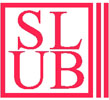
Entry to the digital copy
Part I: Dresden, SLUB, Mscr.Dresd.A.46.a
Entry through the digital collection of SLUB Dresden
Entry through the Digital Library of the University of Wroclaw
Part II: Wroclaw, University Library, Ms.or.I1
Entry through the digital collection of SLUB Dresden
Entry through the Digital Library of the University of Wroclaw
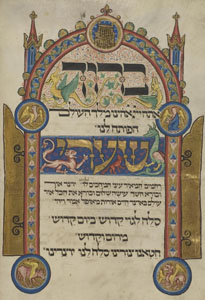
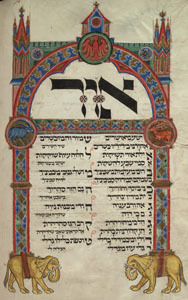
Machsor ("Cycle") is the Jewish equivalent of the Christian Breviary and includes prayers, partly sung, for seven specific Sabbaths and other holidays of the Jewish year, as well as liturgical poems (Pijutim). The oldest Mahzor, so-called Mahzor Worms (today Jerusalem, The Jewish National and University Library, Ms. Heb. 4 ° 778.1-2) dates from 1272/1273.
This two-volume Codex, which is currently stored in Wroclaw and in Dresden, was created around 1290 in the Von Reu'ben area of south-western Germany (Esslingen?) and is attributed to rabbi's student Meir von Rothenburg (died 1293), and illumination to a Christian artist. The large format (53 x 38 cm, 293 or 300 parchment cards), large Hebrew square letters with quite large spacing between the lines as well as richly decorated miniatures and handwritten liturgical notes indicate the use of Codex in the synagogue. Due to the large number of pages, the manuscript, like other Mahzors, was bound in two volumes.
The first part (SLUB Dresden, Mscr.Dresd.A.46.a) contains liturgical texts for the Shabbat feasts "Purim", "Pessach" and "Schawout".
Part two (Wroclaw University Library, Ms.Or.I. 1) - the liturgy of the Shabbat feasts "Rosch haschana", "Yom Kippur" and "Sukkot".
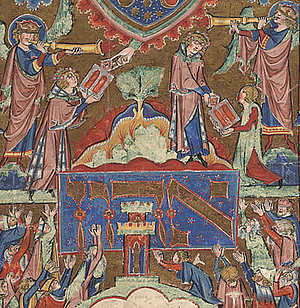
SLUB Drezno,
Mscr.Dresd.A.46.a, Bl. 202v: Miniature for the holiday of the week (Schawuot). At the top: on Sinai, to the accompaniment of trumpets Moses receives from God's hand the tablets with the Ten Commandments and passes them on to Aron. At the bottom: the priests and representatives of the Israeli people are standing with their hands raised towards the Torah
Some notes in the part from Wroclaw refer to the liturgical traditions of the Worm parish. The time of separation between the two parts is unknown so far. The oldest mention of the Dresden part is found in the "Catalogus manuscriptorum Bibliothecae Electoralis" from 1755 (SLUB, Bibl.Arch.I.B, Vol.132, No. 211). The Wroclaw part, according to the inscription from 1595, belonged to Magister Gregor Grunow, preacher in Górzyca (Göritz) near Frankfurt am Oder in the years 1595-1613, from where in 1811, together with the collections of the dissolved University of Viadrina, it reached Wroclaw.
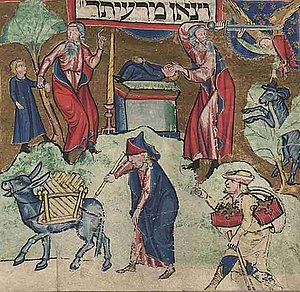
BUWr/Wroclaw
Ms.Or.I 1, Bl. 46v: Miniature of the New Year's Day (Rosch ha-Schana): on the top left, Abraham leads his son Isaac to the top, at the foot of which he leaves his servants with a donkey loaded with wood. On the top right, The Angel of God prevents Abraham from placing his son as the sacrifice on the altar. The Angel holds the sword of Abraham firmly and at the same time points to the lamb as a substitute sacrifice.
Bestandsaufnahme und Geschichte des Jacob-Böhme-Fonds
Since 2002 Wroclaw University Library has participated in that 3-year project led by Bibliotheca Hermetica (Amsterdam) and International Jacob Boehme Institute (IJBI) in Görlitz. Aim of the project is to recover manuscripts and prints of Jacob Böhme and his apprentices that originating from Linz Archive which was dispersed during the Second World War. Next step is bibliographical processing of that materials and recreating their history. In WUL, circa 500 manuscript units were identified. Research works have been finished and in October 2007 in Bibliotheca Hermetica (Amsterdam) an exhibition and conference concerning Jackob Boehme were organized. As a results of project’s research works the book “Jacob Boheme road in the world” was published.
Project "Preservation of European cultural heritage – digitization and microfilming of chosen Silesian newspapers, endangered by paper acidification, from collections of Wroclaw University Library”.
After finishing in 2006 project „Preservation of European cultural heritage – protective microfilming, digitization and popularization of chosen, popular Silesian periodicals from 19th century from collections of Wroclaw University Library”, WUL has engaged in another project that is mostly funded by The Leopold Kronenberg Foundation.
Mission of this Foundation is to assist activities on behalf of common welfare, inter alia in the field of education, culture and art. Forwarded by Wroclaw University Library project fit into field of interest of Foundation's program "Cultural heritage and tradition” and was accepted and granted financial support.
Wroclaw University Library is repository of knowledge about Silesia region. Here there are periodicals published since 18th century and the largest in the whole world collection of pre-war, German and Polish newspapers published in Silesia region. Amount of library materials collected in University Library is tremendous and popularity of that source is still growing.
Main goals of project (realization term: 5.11.2007 – 30.10.2008) are:
-
securing and protecting chosen historical newspapers and periodicals that were printed on acid paper which quickly erodes,
-
popularization of collections that belong to European cultural heritage by increase of accessibility to their copies and their presentation in conjunction with access to their digitized versions in Digital Library of Wroclaw University.
Microfilming of newspapers and periodicals allows secure priceless collections. Digitization allows gain easy and modern access to historical writings in form of digitized pictures. Their presentation in Digital Library will increase promotion of vast collections of Wroclaw University Library.
"New organization of scientific library – free access to library resources” in Freie Universität Berlin Library
From „Lifelong Learning Programme” in the framework of Mobile Programs of EU - Wroclaw University Library was granted financial support for the project „New organization of scientific library – free access to library sources”. Owning to that project two librarians from Wroclaw University Library: one from Scientific Information Department and the second one from Silezia-Lusatian Cabinet were sent to the internship to the Freie Universität Berlin Library. Project was realized within Leonardo da Vinci Programme (PL/07/LLP – LdV/PLM/140128) and lasted since 6th of January 2008 till 29th of February 2008.
Aim of that project was to profit from experiences of Freie Universität Berlin Library in the organizational field of library with free access to collections and using this knowledge in planning of organizational structure of University Library in the new library building.
Eight weeks practice was conducted in several libraries: Freie Universität Berlin Library (FUB), FUB Philology Library and other libraries in Berlin and Potsdam.
In first week interns were familiarized with organizational structure of Freie Universität Berlin’s Library, features of ALEPH system as well as role and duties of subject librarians. In second week they learned about work of storage, local lending and interlibrary lending department. Third week was dedicated to scientific information department and reading room duties.
Although institution that organized internship was Freie Universität Berlin Library, interns also visited other Brandeburg's libraries that proved to be useful for overall goal of the practice. They were in: Universitätsbibliothek der Humboldt-Universität zu Berlin, Staatsbibliothek zu Berlin, Zentral – und Landesbibliothek Berlin and HFF Library in Potsdam (Die Hochschule für Film und Fernsehen (HFF) "Konrad Wolf" Potsdam-Babelsberg). In sixth week of stay interns visited FUB Philology Library that is model example of library with free access to collections. They learned about RVK classification system and its functioning within library as well as about duties concerning re-classification of books from old to new classification scheme, that is done by local students.
In the last week interns were offered individual programs, accordant to their personal preferences. One was familiarized with standard long-term archiving program (DINI) and with program of digitization of old and present publication of University at Erwin Schrödinger Center that function under jurisdiction of Humboldt State University Library (Arbeitsgruppe Elektronisches Publizieren). The second one underwent practice in Center for Digital Systems (CeDiS) that serves as Reference Center for Multimedia and e-learning. Aim of internship at CeDiS was to learn about specific methods of e-learning usage at Freie Universität Berlin. It is used for presentation of didactical materials – academic teachers are publishing their lectures on web page and employees of CeDiS help them in preparation of e-learning courses, secure access to Blackboard platform and train them in its usage. Practice includes also presentation of Distributed Campus project.
Interns prepared multimedia presentation, to share gained information with other employees of WUL.
"Preservation of European cultural heritage – protective microfilming, digitization and popularization of chosen, popular Silesian periodicals from 19th century from collections of Wroclaw University Library"
Project was conducted since 1.10.2005 till 15.11.2006 and was mostly funded by The Leopold Kronenberg Foundation – organization founded in 1996, on the 125th anniversary of the establishment of Commerce Bank in Warsaw. Mission of Foundation is to assist activities on behalf of common welfare in the fields of education, culture and art, accordant to activities of founder of Bank - Leopold Kronenberg. University's project fit into field of interest of Foundation's program "Cultural heritage and tradition” and was accepted and granted financial support as very interesting and valuable.
Aim of that project was to secure and protect chosen historic newspapers that are invaluable source materials for Silesia history.
Donation of The Leopold Kronenberg Foundation was also spent on:
- protective microfilming,
- scanning from originals,
- electronic processing of digital pictures,
- entering metadata to files,
- archiving on CD-ROMs and DVD-ROMs,
- publicizing information in internet.
Owning to this endeavor, readers will have wide and functional access to collections.
During conduction of project, following titles were microfilmed:
Anzeiger für Zobten am Berge, Zobten am Berge 1909-1941 (with breaks)
Illustrierte Wochenbeilage der Schlesischen Zeitung, Berlin 1924-1927, from no. 14 from 1927 change of title: Illustrierte Schlesische Zeitung, Breslau 1927-1934
Breslauer Gericht Zeitung, Breslau 1897-1942
Neisser Zeitung
Ottmachauer Zeitung
Grottkauer Zeitung
Neumarktrer Kreisblatt
During conduction of project, following titles were digitized:
Anzeiger für Zobten am Berge, Zobten am Berge 1909-1941 (with breaks)
Illustrierte Wochenbeilage der Schlesischen Zeitung, Berlin 1924-1927, from no. 14 from 1927 change of title: Illustrierte Schlesische Zeitung, Breslau 1927-1934
Breslauer Gericht Zeitung, Breslau 1897-1942
[Menzel Karl Adolf], Topographische Chronik von Breslau, Bd.1-2, Breslau 1805-1807,
Breslauische Horcher, Breslau 1800-1802,
Breslauische Erzähler, Breslau 1800-1809,
Neuer Breslauischer Erzähler 1810-1812.
Listed above titles are available in Special Collections Reading Room in form of microfilms or digitized files and Illustrierte Wochenbeilage der Schlesischen Zeitung and Breslauer Gericht Zeitung could be accessed in Digital Library of UoWr.

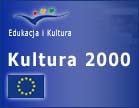
Project was conducted as a part of “Culture 2000 Program” and has been completed within period of one year: since 1.09.2004 till 30.08.2005.
Coordinator of that project was Wroclaw's Carmelites choir - Cantores Minores Wratislavienses, and coorganizers: Wroclaw University Library, University Library Graz and National Library in Prague. Aim of that project was to: support common cultural heritage of many nations, protect and popularize archive and antiques of music and promote mutual cultural knowledge. It was planned in form of moving exhibitions, concerts – vernissage and expositions in electronic form in internet. “Bibliotheca Sonans” project has been divided into three stages:
1) restoration, conservation and digitization of music antiques from participating libraries:
- Wroclaw (Poland) – Wroclaw University Library (inter alia incunabula collection – oldest prints published before 1501, music collection from so called Bibliotheca Rudolphina from Legnica, music manuscripts from St. Elizabeth Church in Wroclaw)
- Graz (Austria) - Karl-Franzens-Universität, Universitätsbibliothek
- Prague (Czech Republic) - Narodni Knihovna CR
2) exhibitions and concerts:
Wroclaw – Oratorium Marianum in Main Building of University of Wrocław and in other cities: co-ordinators of project – Graz (Austria), Prague (Czech Republic) and partners of project – Bratislava (Slovakia), Brasov (Romania)
3) recording of music antiques, preparation of internet web page (electronic version of exhibition), preparation of exhibitions’ catalogs and sending them to one hundred European libraries, that signed agreement for publication exchange with Wroclaw University Library.
Aim of the project was to: support common cultural heritage of many nations, protect and popularize archive and antiques of music and promote mutual cultural knowledge.
More information about project summary was published on EBIB's web page.
Documentation of project realization and photos from exhibitions could be viewed on Wroclaw University Library web page.
Completed project could be viewed in Digital Library of WU.
Research on chosen map series of Lower Silesia region from second half of 19th and first half of 20th century as reflection of terrain changes, processed in VIRTUA computer system
Project has been conducted since 7.10.2003 till 6.10.2006 and was entirely funded by State Committee for Scientific Research. Aim of that project was selection of cartographic materials that were subject of research, creation of databases and authority subject headings needed for map bibliographical descriptions. During realization of project topographic and map series of Lower Silesia region from second half of 19th and first half of 20th century were processed.
For purpose of project realization computer equipment was bought.
Bibliotheca Corviniana Digitalis
Coordinatior of that project was National Library in Bucharest that was willing to recreate Maciej Korwin's collection and to present it in electronic version. For that purpose in 2003, Wroclaw University Library has delivered to National Library in Bucharest scanned manuscript that is held in collections of WUL.
Common European heritage – protection and increasing accessibility to antiques of writing from Polish-German cultural border in Polish libraries
In years 1997 – 2002 Wroclaw University Library took part in greatest joint project of Polish and German libraries. Aim of that project was to select Silesian, Pomeranian and Prussian prints, microfilming them and processing them in electronic databases form catalog of microfilmed prints from 16th to 18th century that were published in Silesia, Pomeranian and East Prussia regions. Program for processing and microfilming included:
1) Old prints from period 1501-1800,
2) Newspapers and periodicals from 19th and 20th century,
3) Jewish periodicals and in Yiddish language,
4) chosen masons prints from Adam Mickiewicz University Library.
In realization of that project participated: National Library in Warsaw, that later included in the project collections of The Jewish Historical Institute in Warsaw, Wroclaw University Library, Pomeranian Repository in Szczecin, Gdańsk Library of the Polish Academy of Sciences, that choose to commission microfilming to outside company. From German side partner of project was Bavarian State Library in Munich.
Project was initiated and partially funded (circa 250 thousand euro) by Robert Bosch Foundation. But main financial support was received, with help of Robert Bosch Foundation, from Polish-German Cooperation Foundation in Warsaw (PGCF) that finally granted circa 2 million euro for realization of project.
During conducting of project 40,106 old prints and 5,486 volumes of newspapers and periodicals have been microfilmed on almost 5,100.000 microfilm stills. All of listed above materials (and many others) were also cataloged. PGCF funded during realization of project 20 regular posts and created microfilm workshops in: Warsaw, Wroclaw and Szczecin, equipping them with eight of highest value cameras. Foundation also bought 16 computers for libraries in Warsaw, Wroclaw, Szczecin, Gdansk and Poznan.
Bayerische Staatsbibliothek received so far 5,000 reels of microfilms along with catalog descriptions from Polish libraries, that were entered into their inside catalog.
Merging and unification of catalog databases from four libraries: National Library in Warsaw, Gdańsk Library of the Polish Academy of Sciences, Wroclaw University Library and Pomeranian Repository in Szczecin were done by team from Section for Cataloging of Wroclaw University Library's Old Prints Department under the lead of Weronika Karlak. Merged database contained circa 35 thousand unified microfilms descriptions, including 17,070 descriptions of 16,006 microfilmed items from Wroclaw University Library, 14,500 descriptions of microfilmed items from National Library in Warsaw, 2,500 descriptions of microfilmed items from Pomeranian Repository in Szczecin and 2,500 descriptions of microfilmed items from Gdańsk Library of the Polish Academy of Sciences. Merged database is base for central electronic catalog of those descriptions that resides on on server of Wroclaw University Library. Besides of this, descriptions were also sent to European Register of Microfilm Masters (EROM – now called: The European Register of Microform and Digital Masters – EROMM). In this way, main goal of project has been completed: “availability of collections”, that mainly focus on information about localization of materials. As final stage of project, CD-ROM "Wspólne dziedzictwo europejskie. Druki XVI-XVIII w. ze zbiorów Biblioteki Narodowej, Biblioteki Uniwersyteckiej we Wrocławiu, Książnicy Pomorskiej w Szczecinie i Biblioteki Gdańskiej PAN. Katalog mikrofilmów (Common European heritage. Prints from 16th to 18th century in collections of National Library in Warsaw, Wroclaw University Library, Pomeranian Repository in Szczecin and Gdańsk Library of the Polish Academy of Sciences. Microfilm catalog)" was published with active participation of W. Karlak from Wroclaw University Library.
During realization of the project, within every fragmentary agreement some funds for print conservation were secured. As a result of this, in years 1998-2000, from received funds, Special Collections’ Conservation Workshop of Wroclaw University Library renovated 159 volumes of old prints.
Author's project of prof. dr. Klaus Garber – microfilming and microfiching of leaflet prints from WUL's collections.
In years 1993-1997 Wroclaw University Library cooperated with University of Osnabrück during realization of project of prof. dr. Klaus Garber. Aim of that project was to: select, microfilm and later microfiche leaflets, mostly congratulatory, prints from Library's collections. For purpose of project, access to inventory was granted, as well as to about 100 thousand prints, among which circa 24 thousand has been microfilmed.
As a result of that project multivolume publication "Handbuch des personalnen Gelegenheitsschrüfttums in europäischen Bibliotheken und Archiven" was published. Wroclaw University Library's collection (about 1410 microfiches) is presented in eight volumes:
-
Bd. 1-2. Universitätsbibliothek Breslau. Abt. 1 Stadtbibliothek Breslau (Rehdigeriana / St.Elisabeth). T. 1-2. Hildesheim 2001
-
Bd. 9-11. Universitätsbibliothek Breslau. Abt. 2 Stadtbibliothek Breslau (St.Bernhardin). T. 1-3. Hildesheim 2003
-
Bd. 17-18. Universitätsbibliothek Breslau. Abt. 3 Stadtbibliothek Breslau (St. Maria Magdalena). T. 1-2. Hildesheim 2005
-
Bd. 19. Universitätsbibliothek Breslau. Abt. 4 Bestände aus Liegnitz und Brieg. T. 1. Hildesheim 2007
Protective microfilming of chosen German old prints from Wroclaw University Library - Sicherungsverfilmung ausgewählter deutschsprachiger Altbestände in Universitätsbibliothek Breslau
In years 1992 – 1996 Wroclaw University Library cooperated with Philipps-Universität Marburg on the field of protective microfilming of German old prints. Administer of this project was prof. dr Rudolf Lenz.
Jointly 8,515 items were microfilmed, mostly chosen form collection of incunabula from Brzeg Library and Bibliotheca Rudolphina. As a result of this project, paper card catalog has been created and computer database in Allegro program. For completion of the project Library has been equipped with one computer station and one camera for print filming.
During conduction of the project renovation of 150 incunabula from Old Prints Department has been funded. Conservation has been preformed by employees of Special Collections’ Conservation Workshop of Wroclaw University Library.

